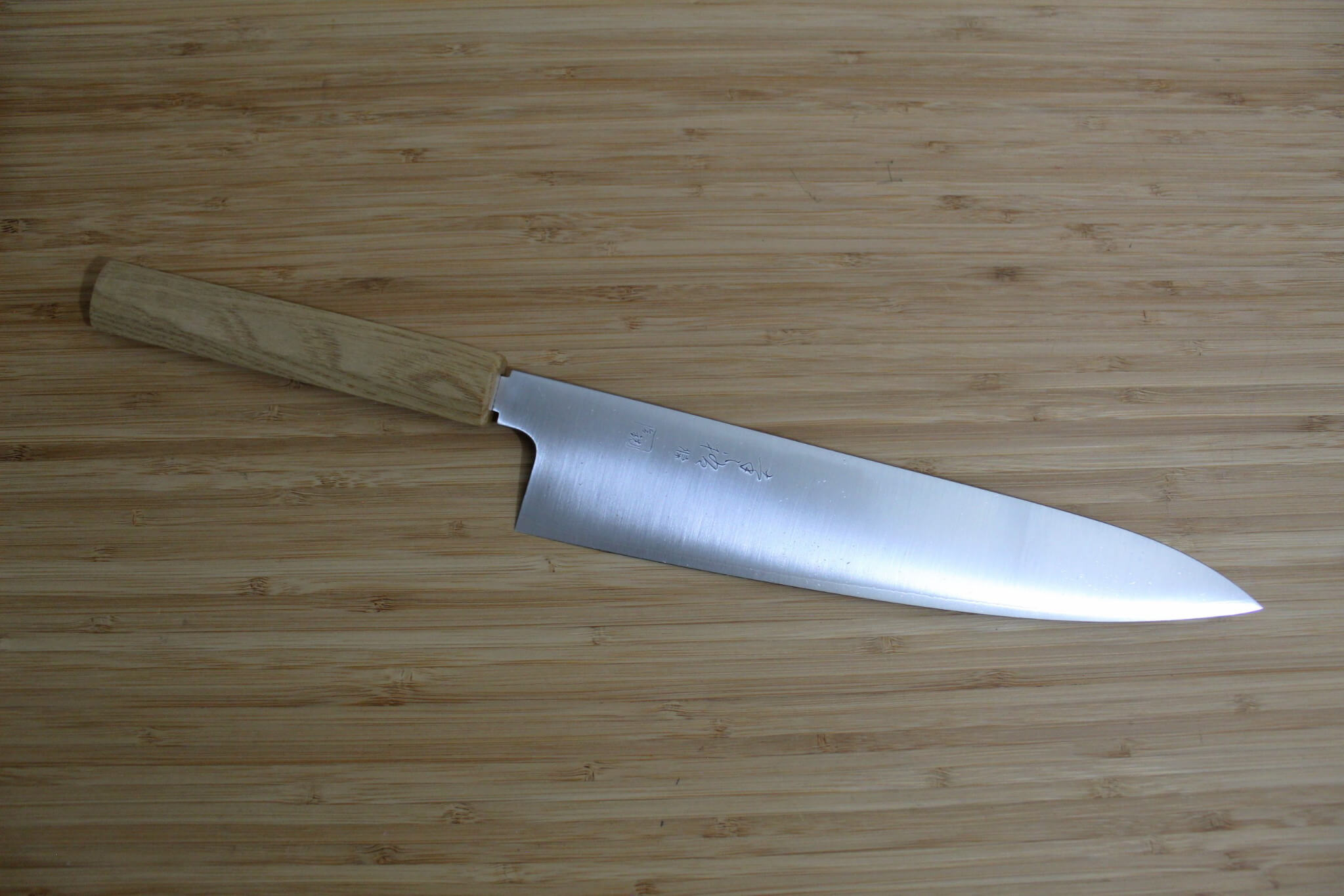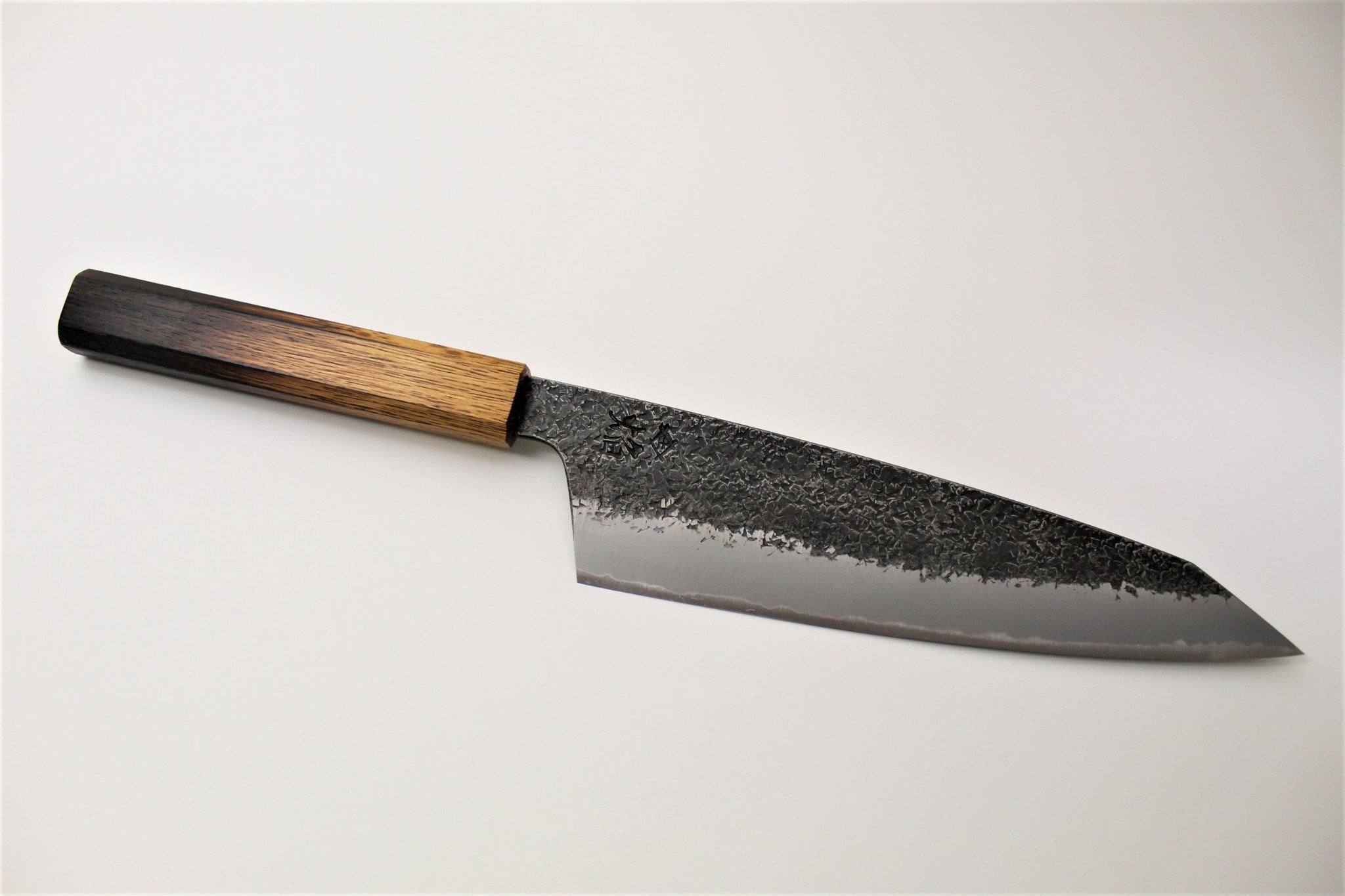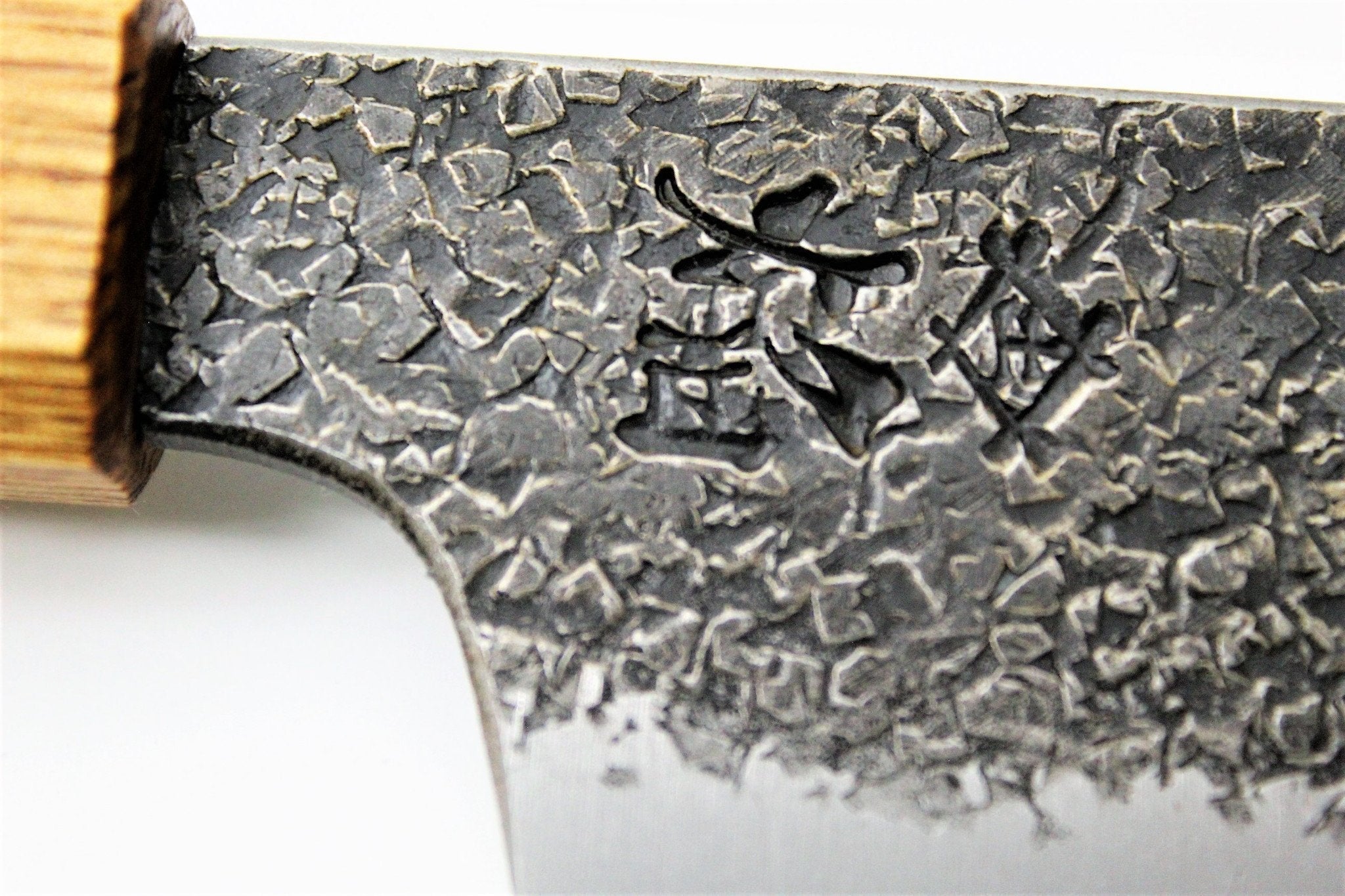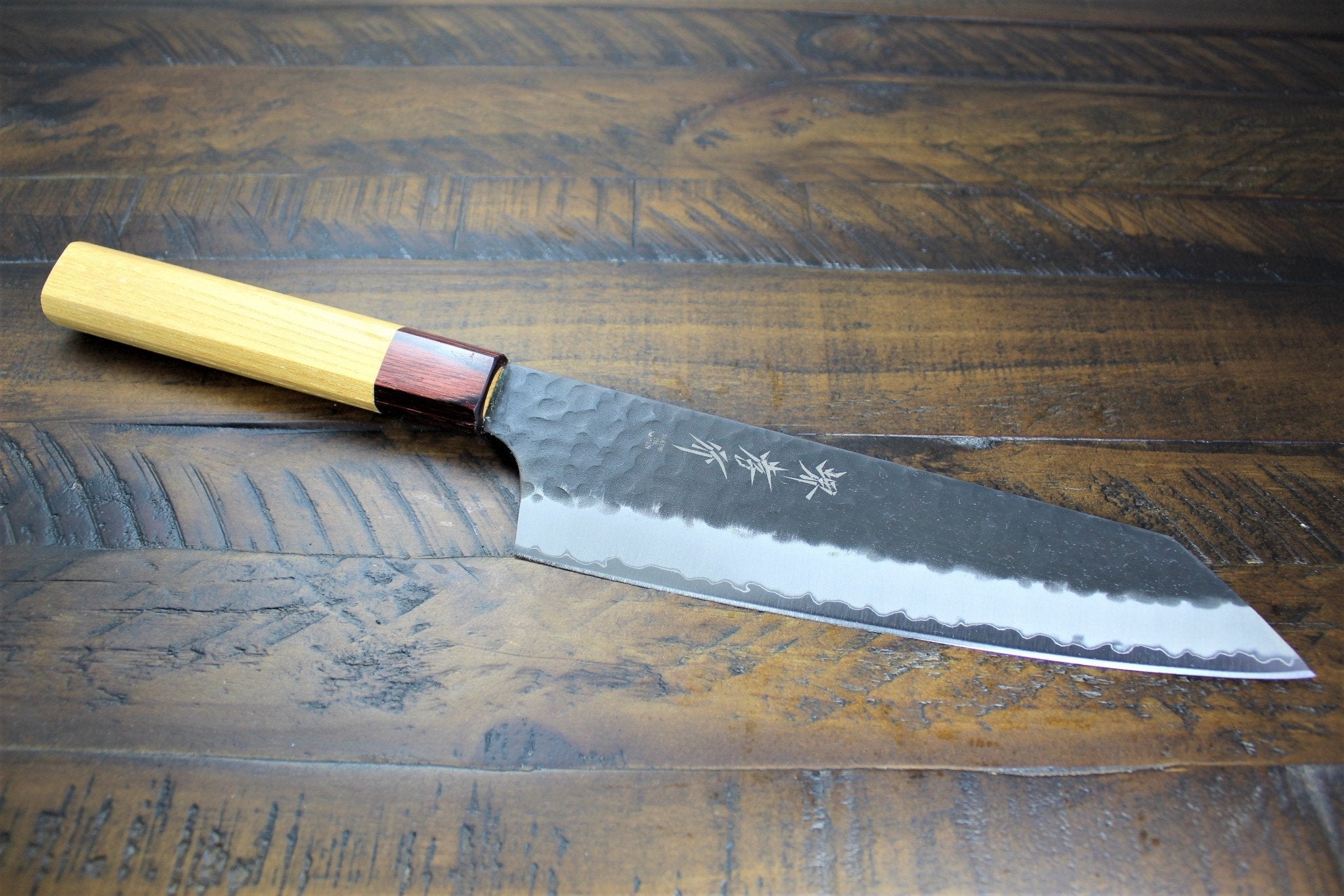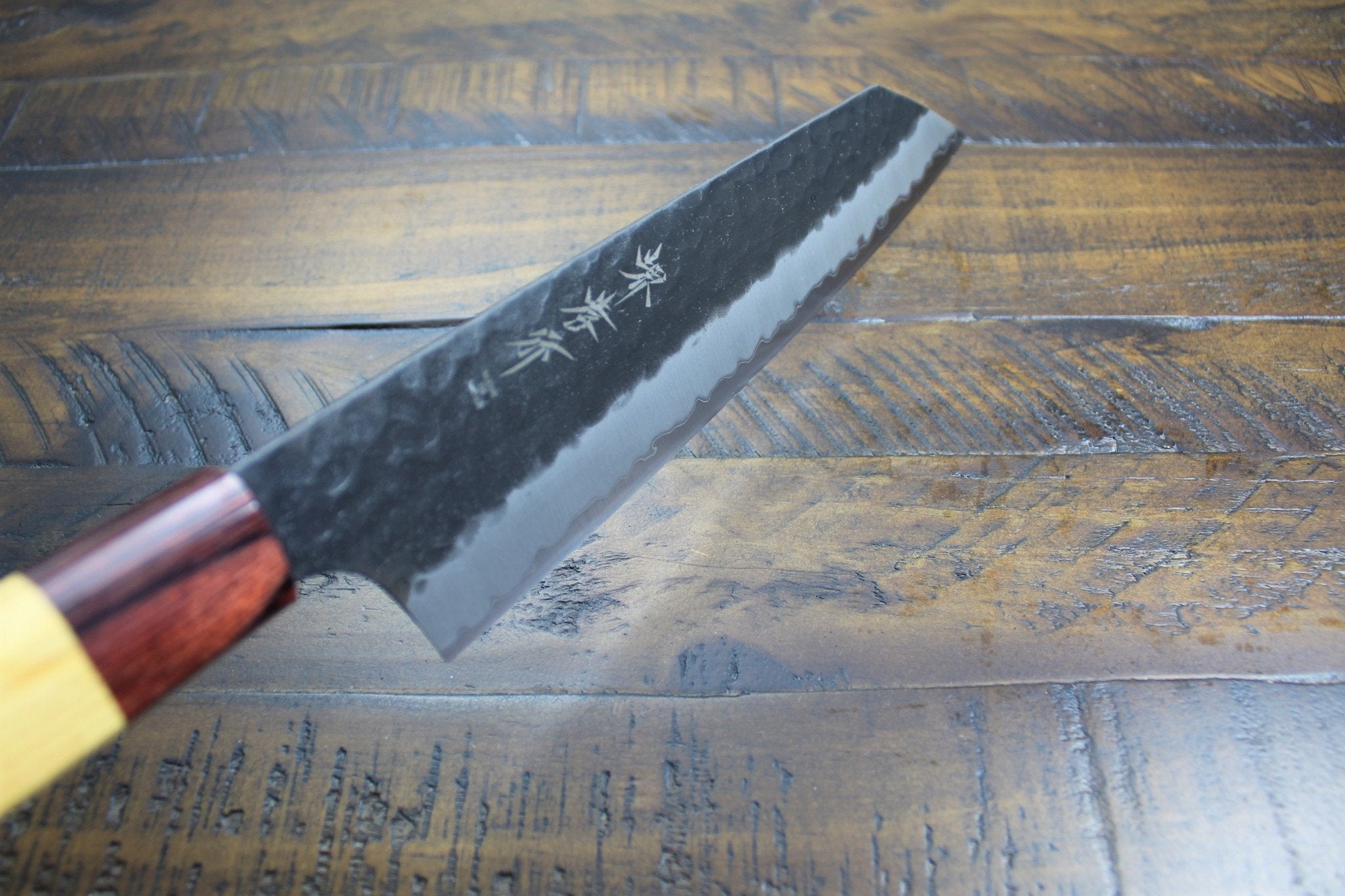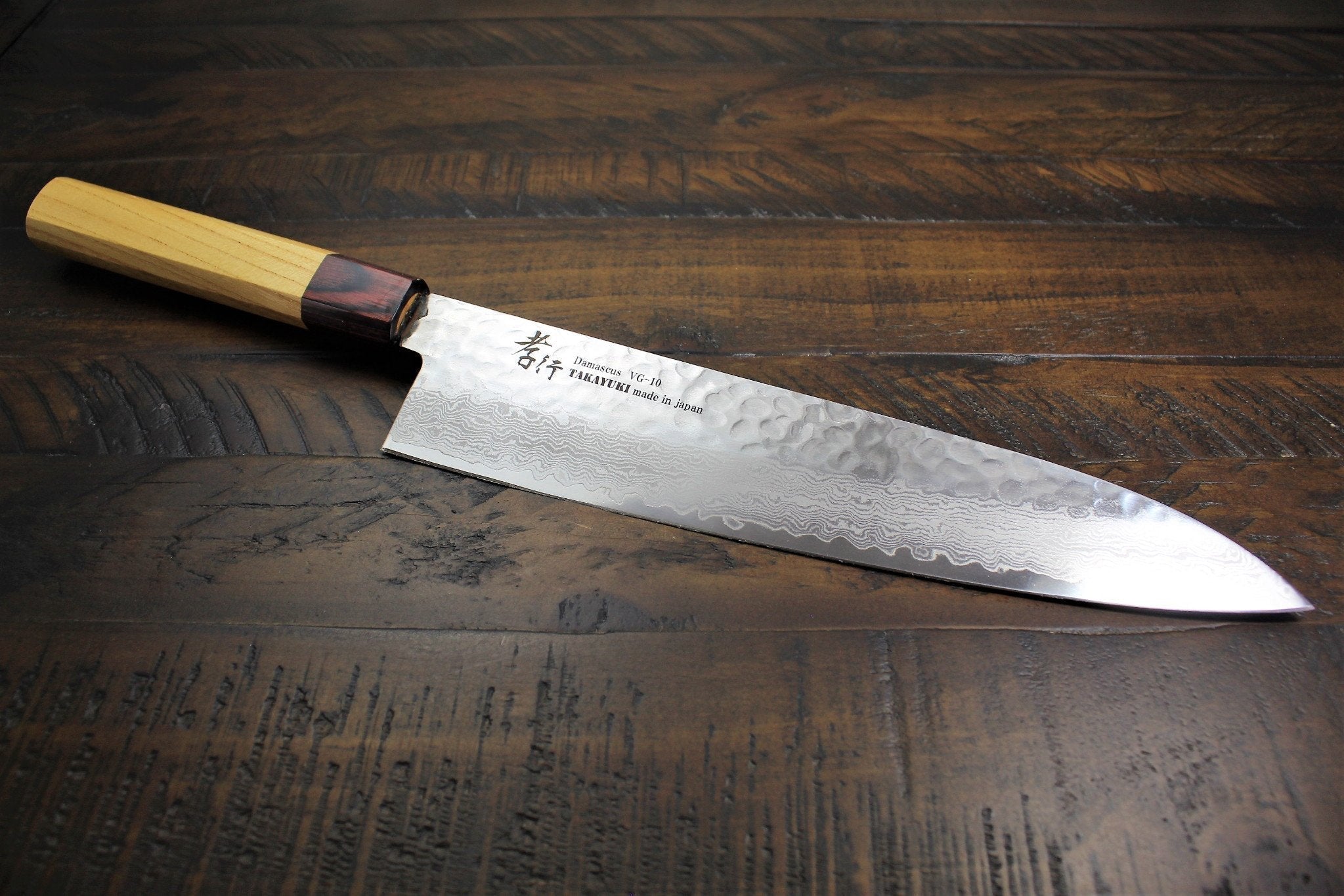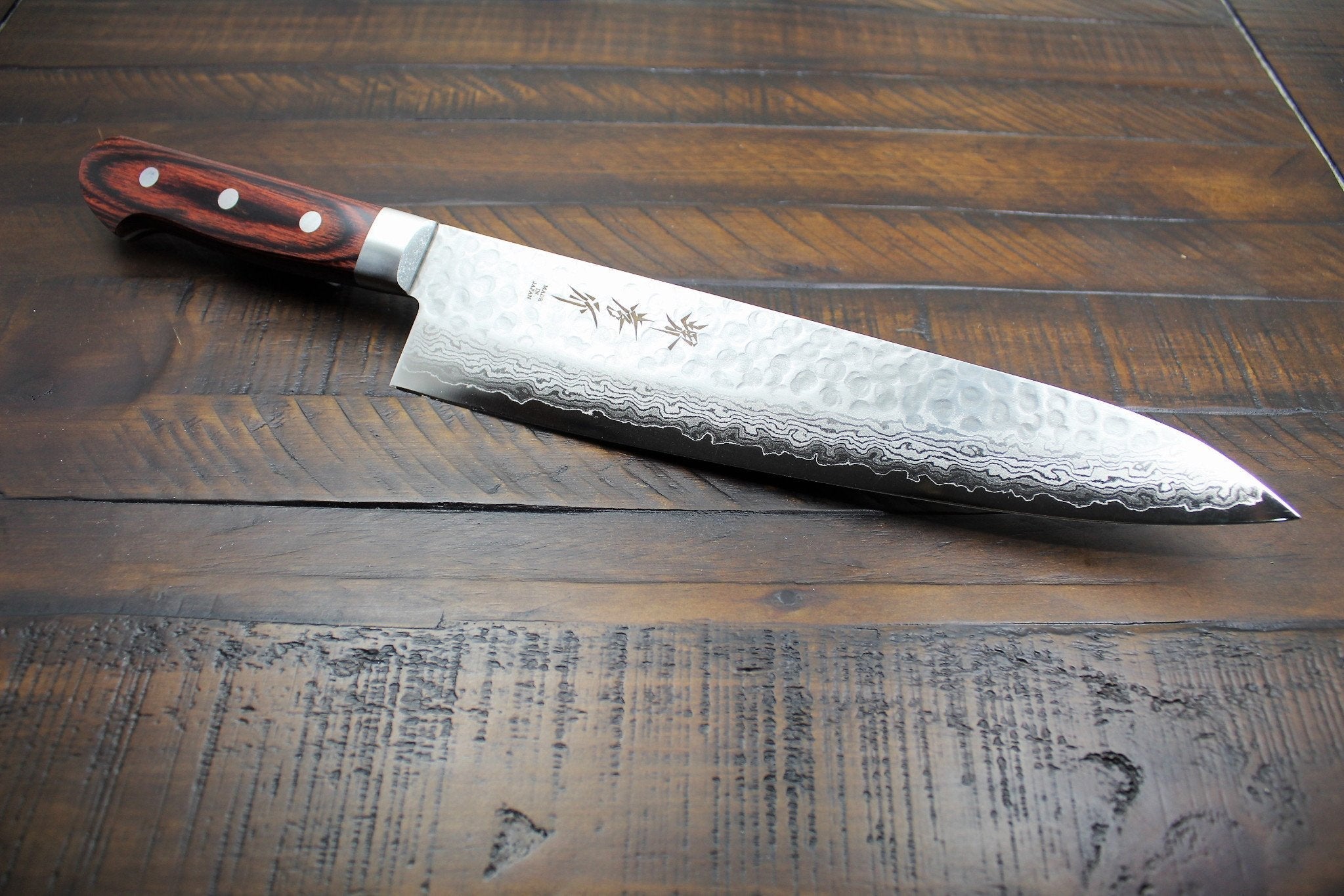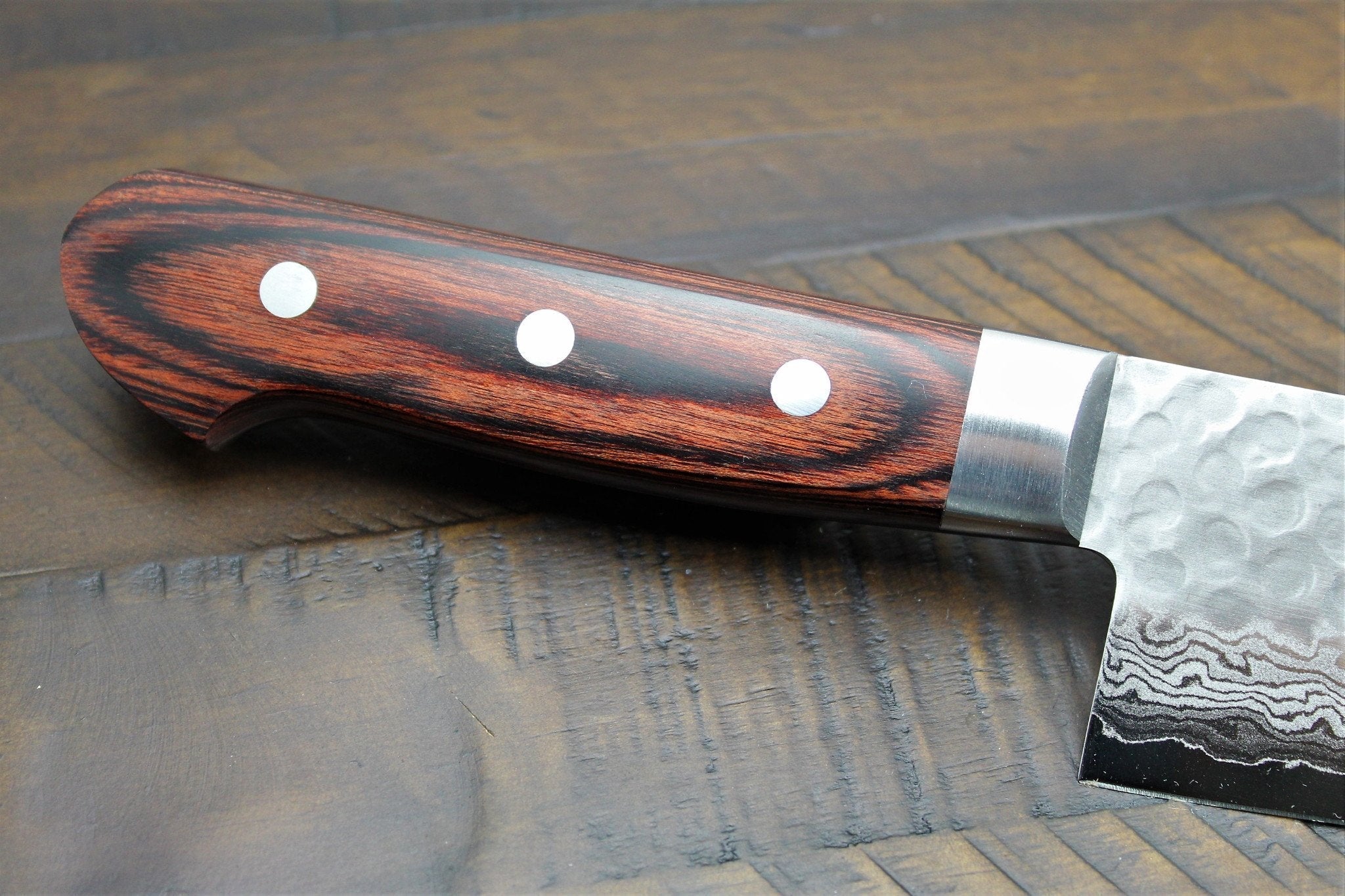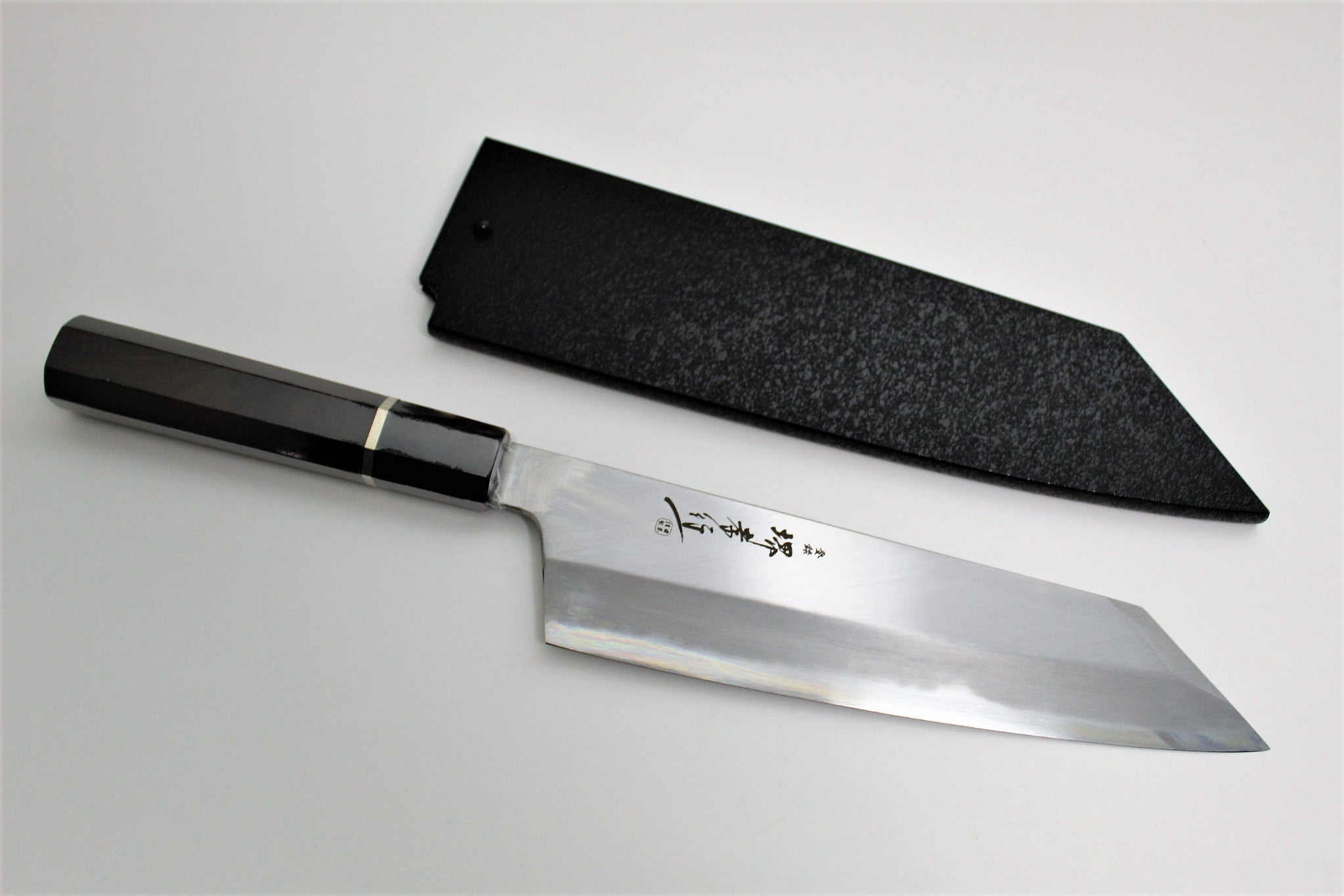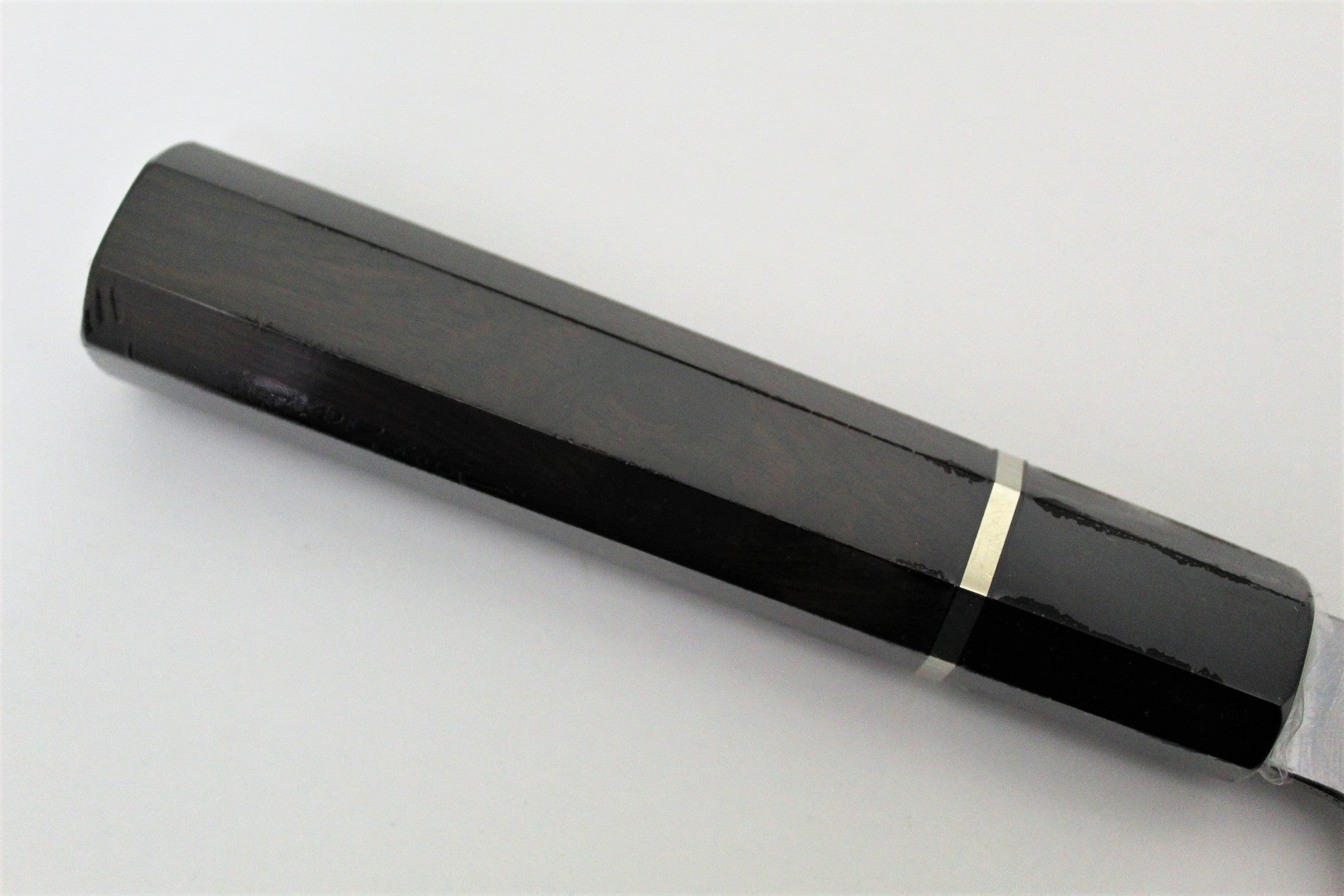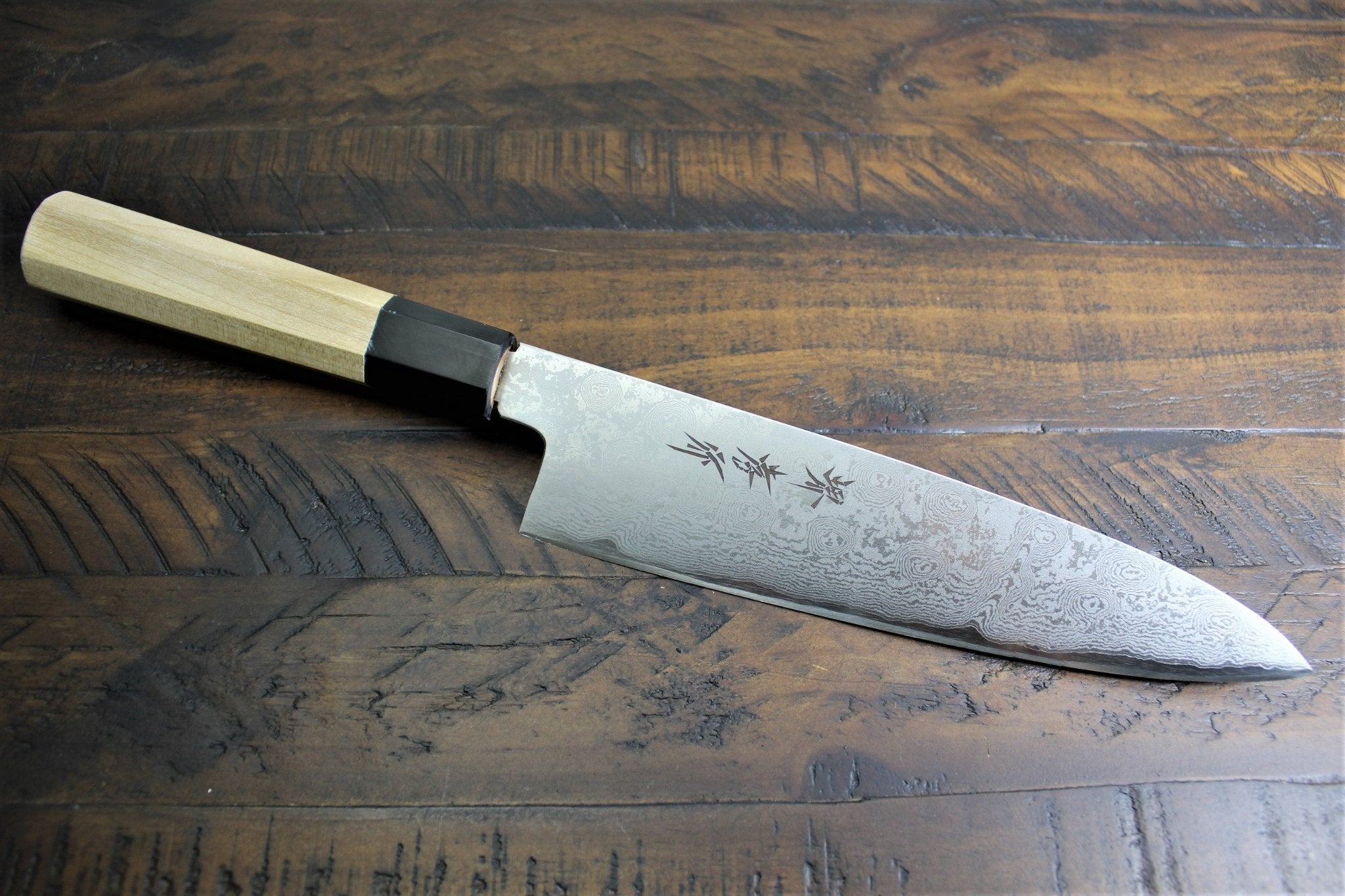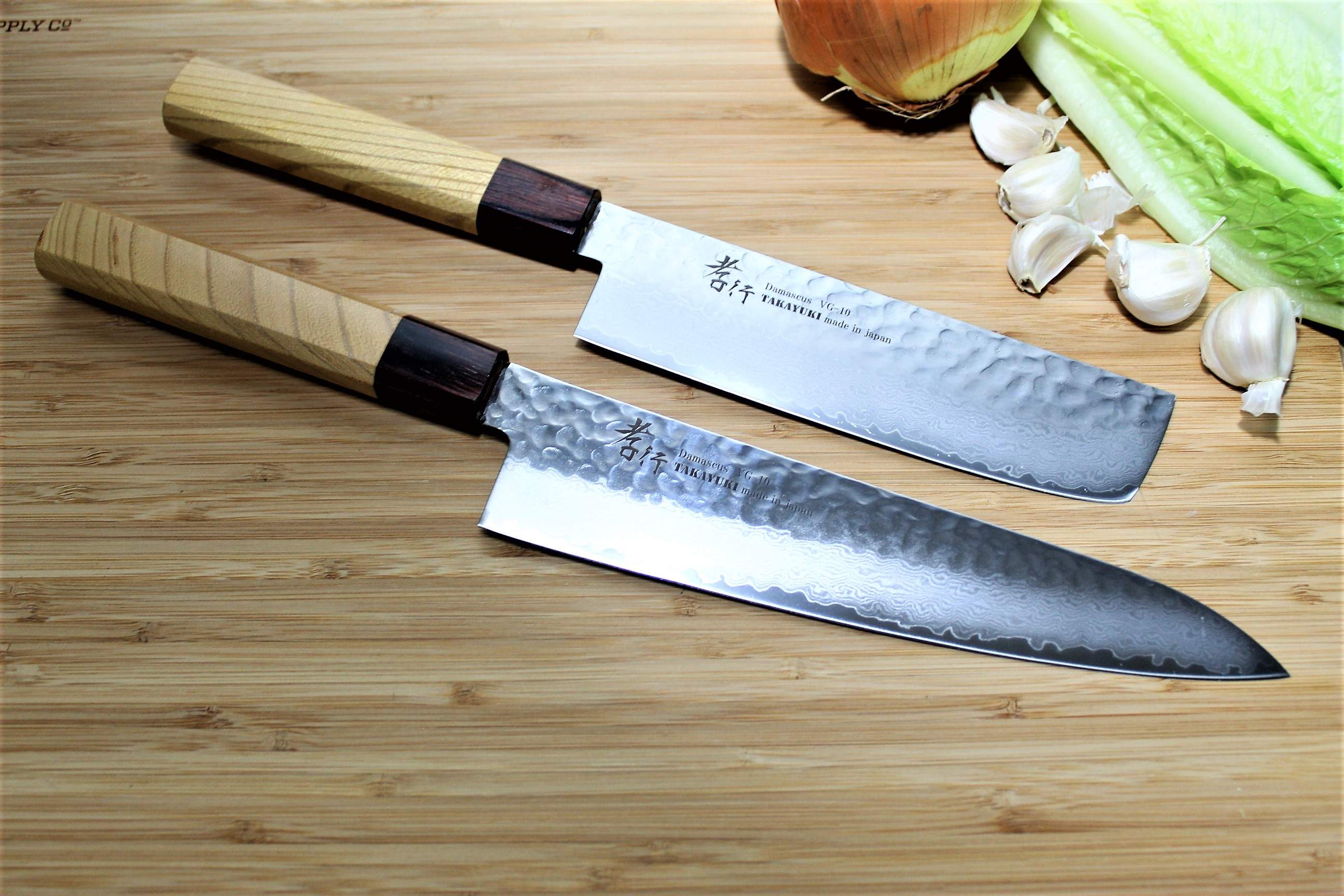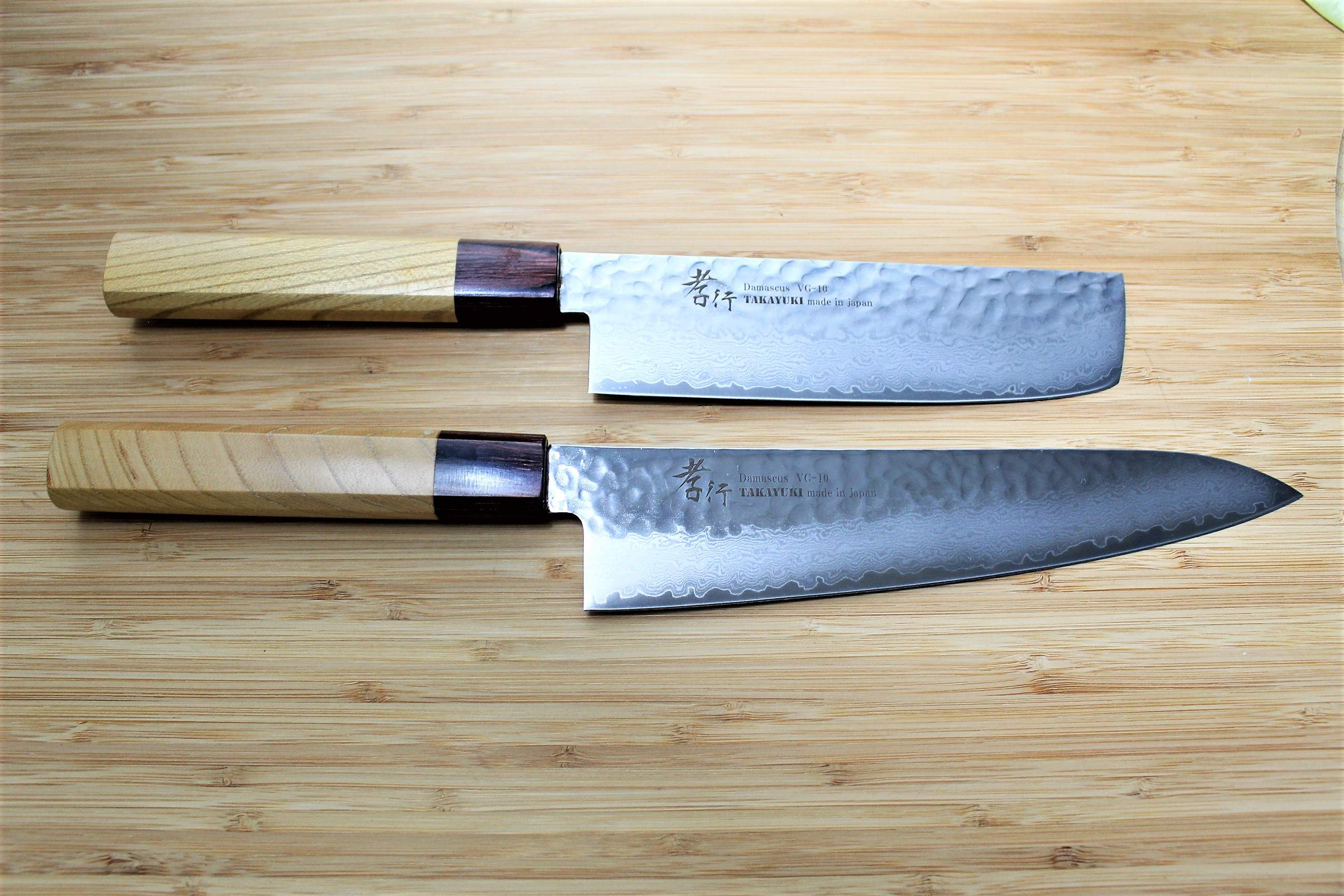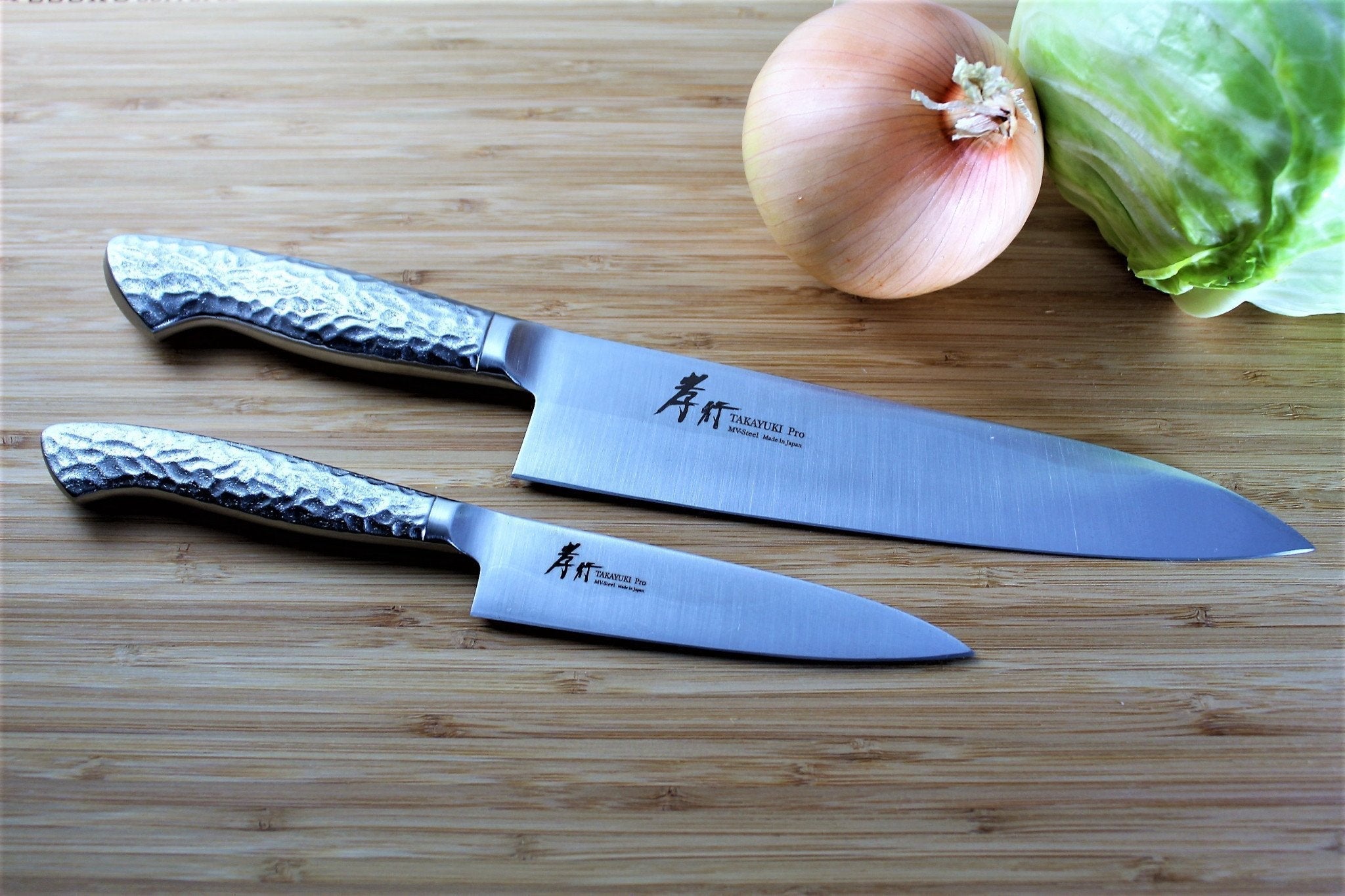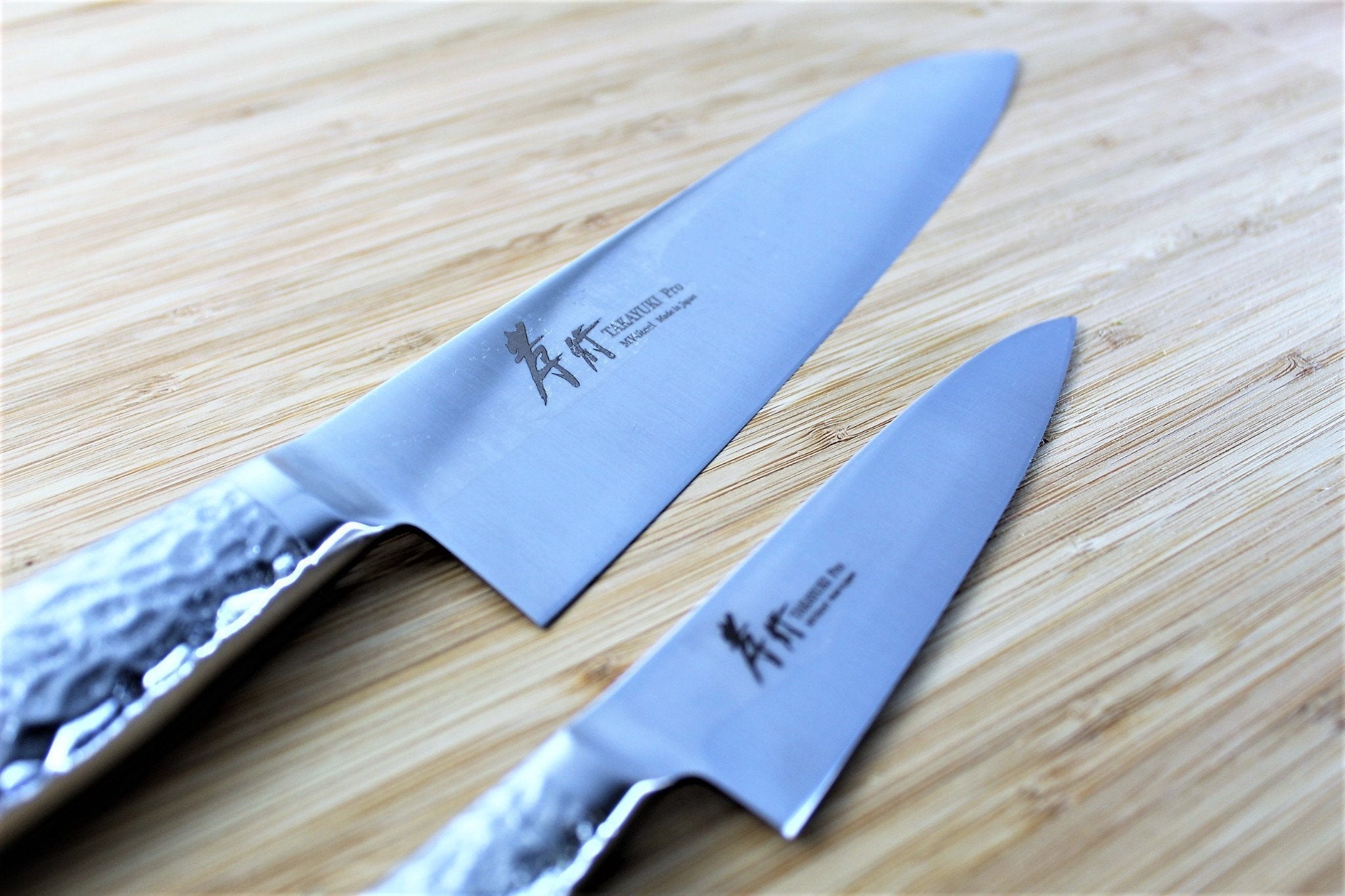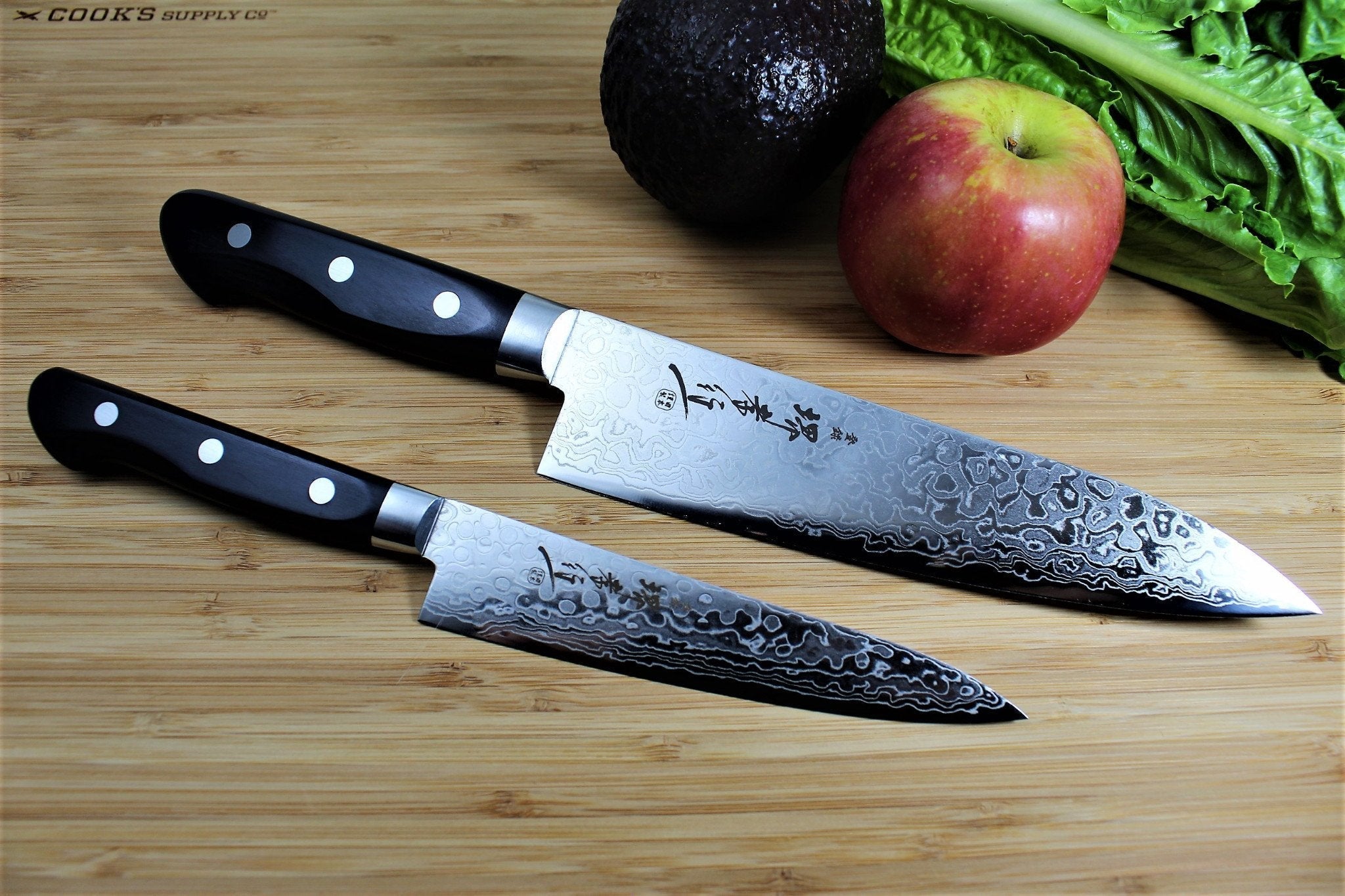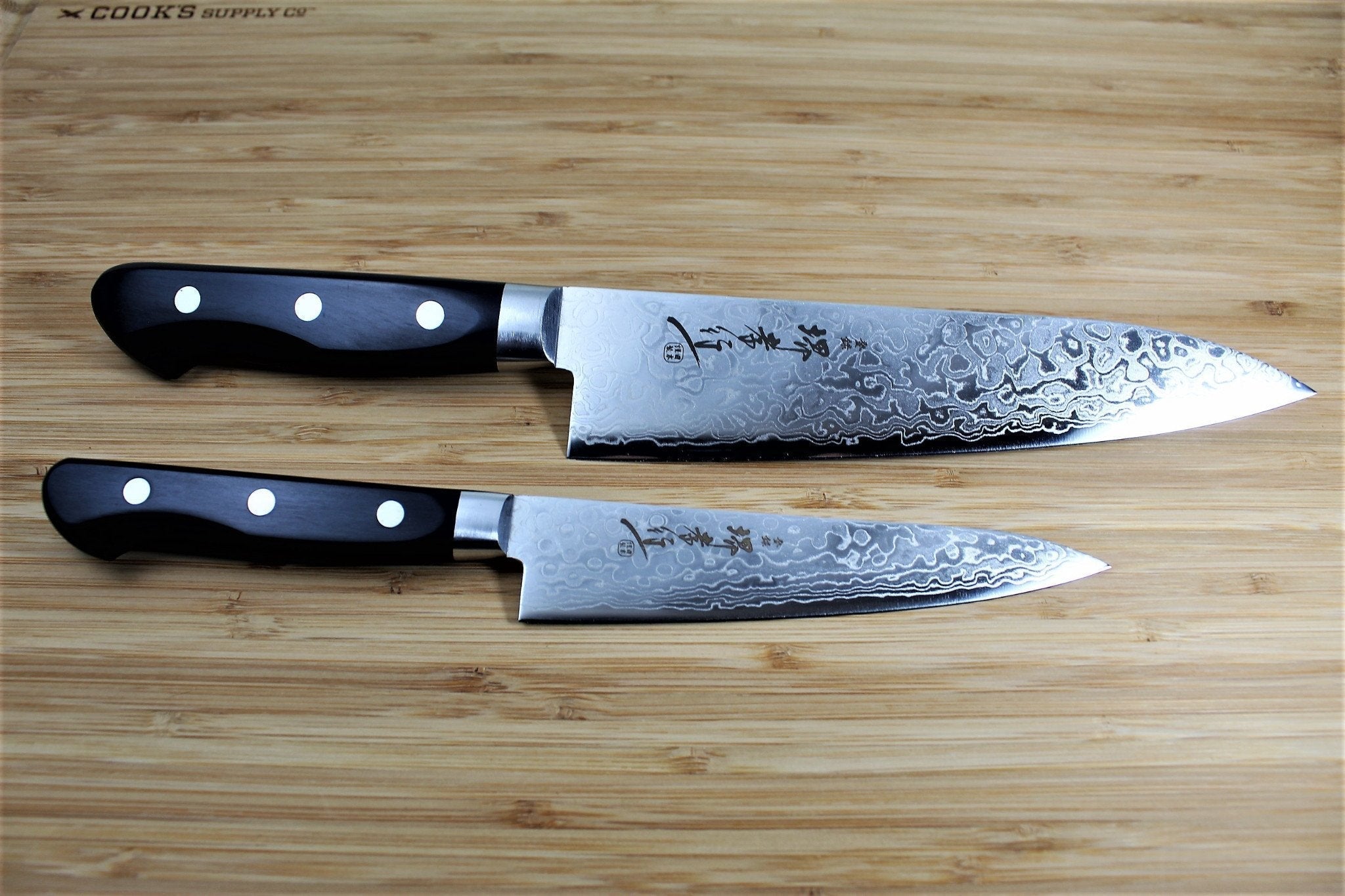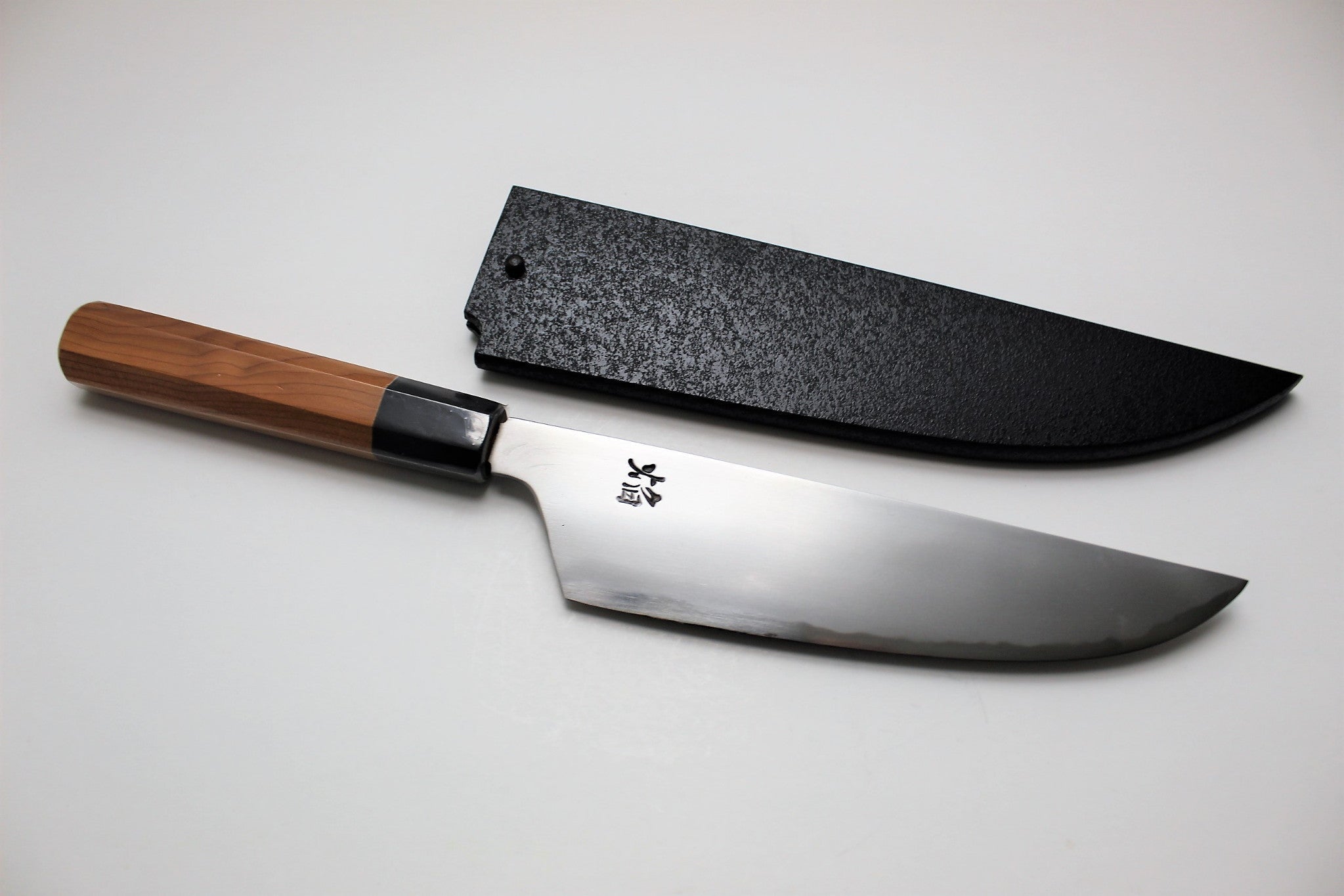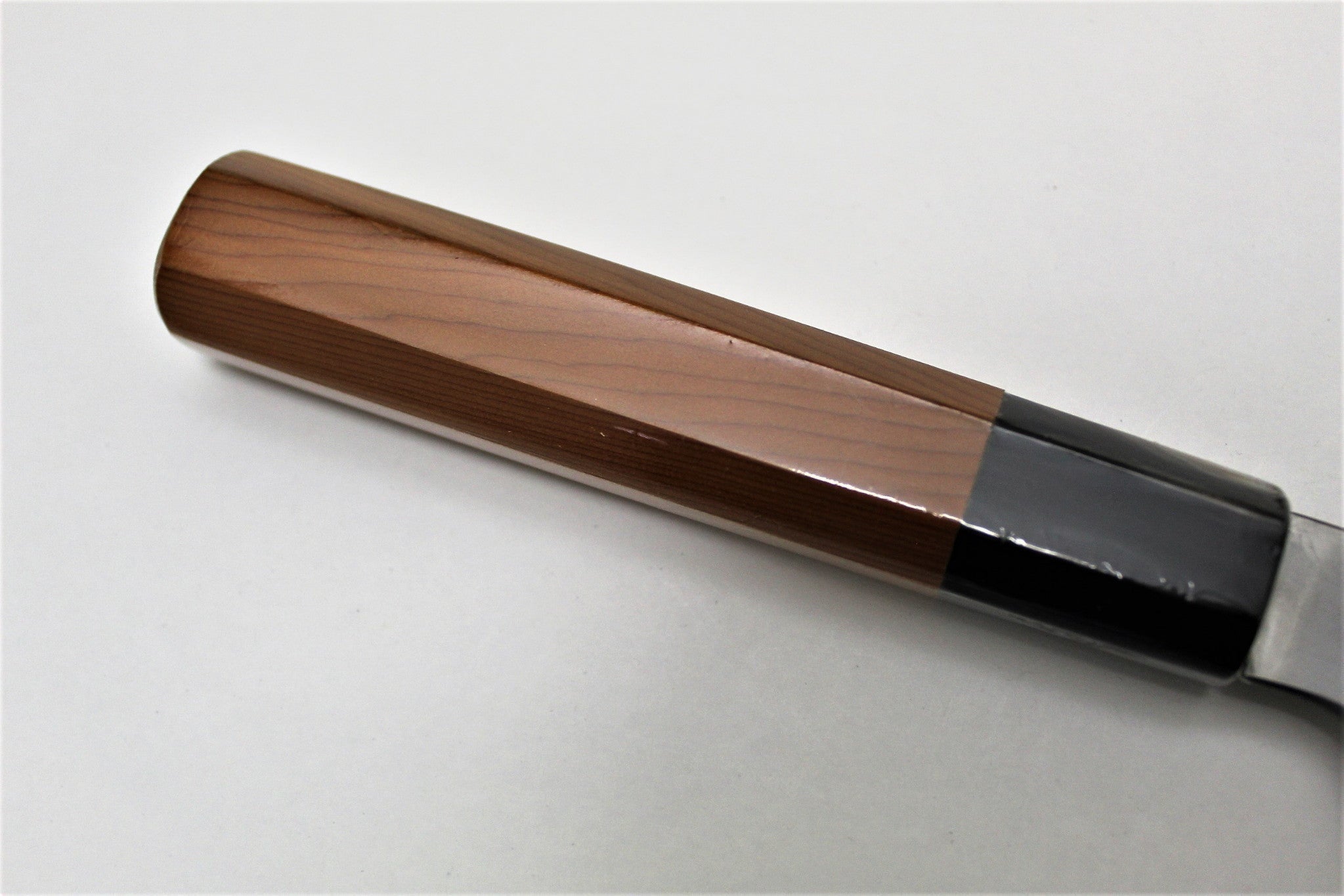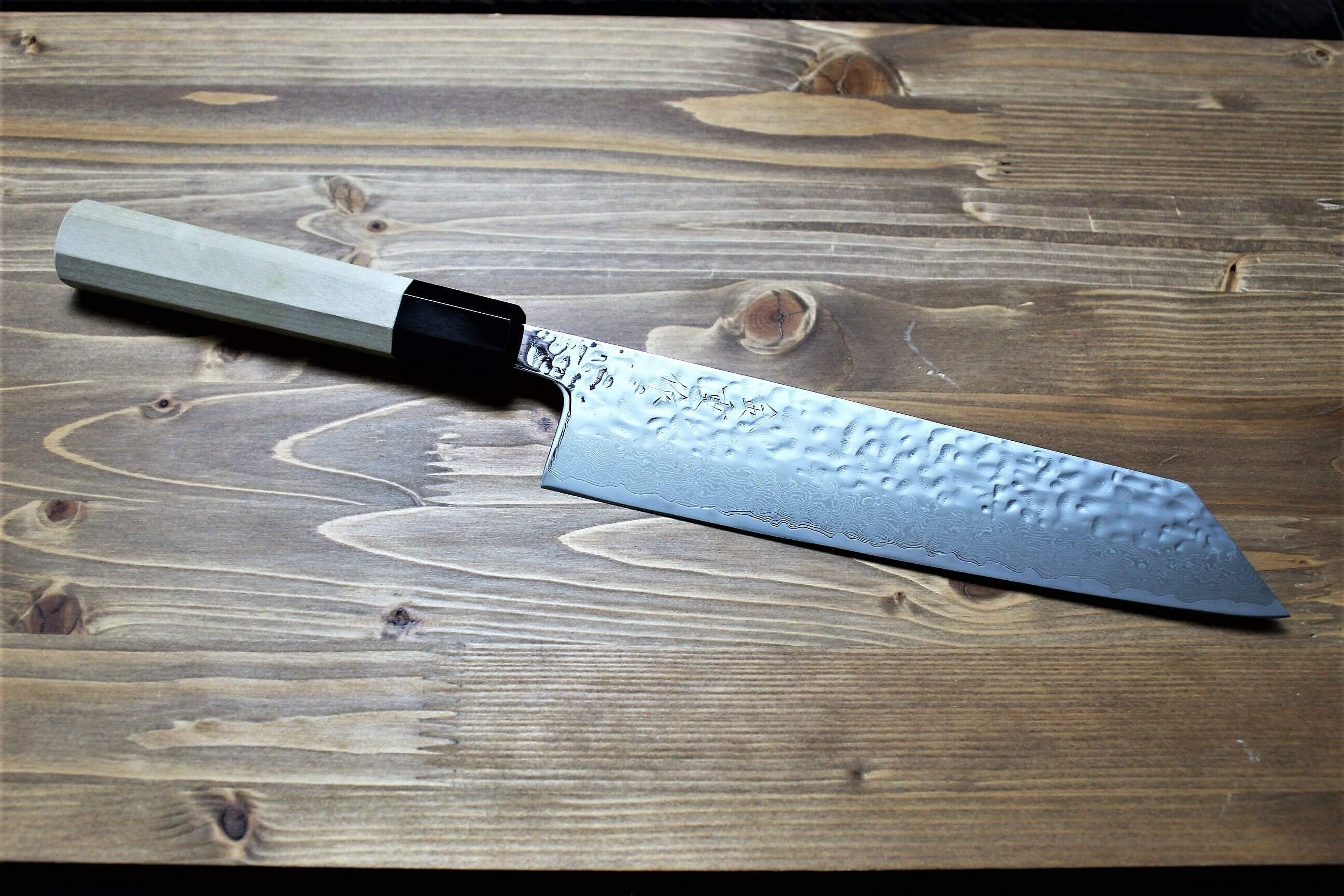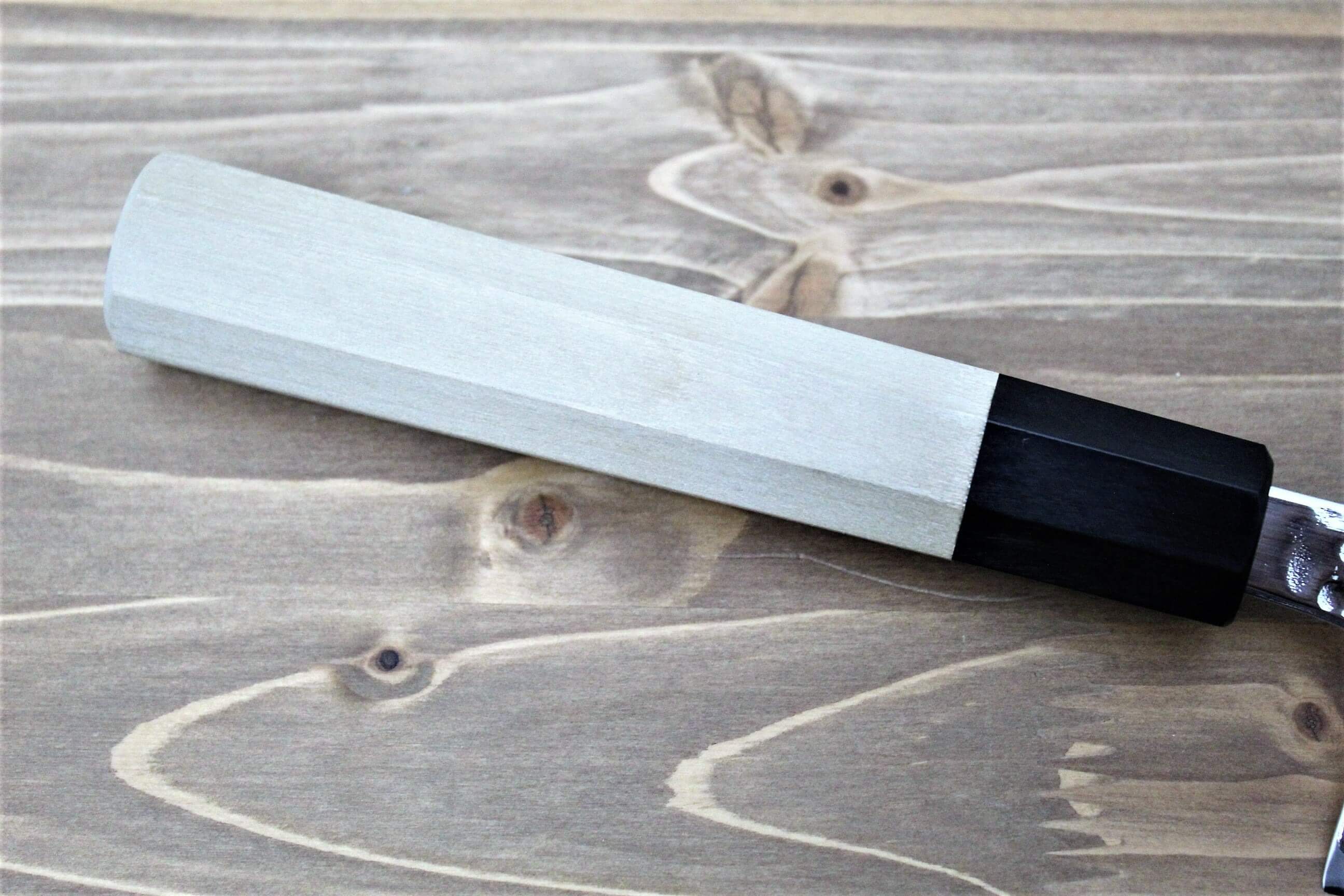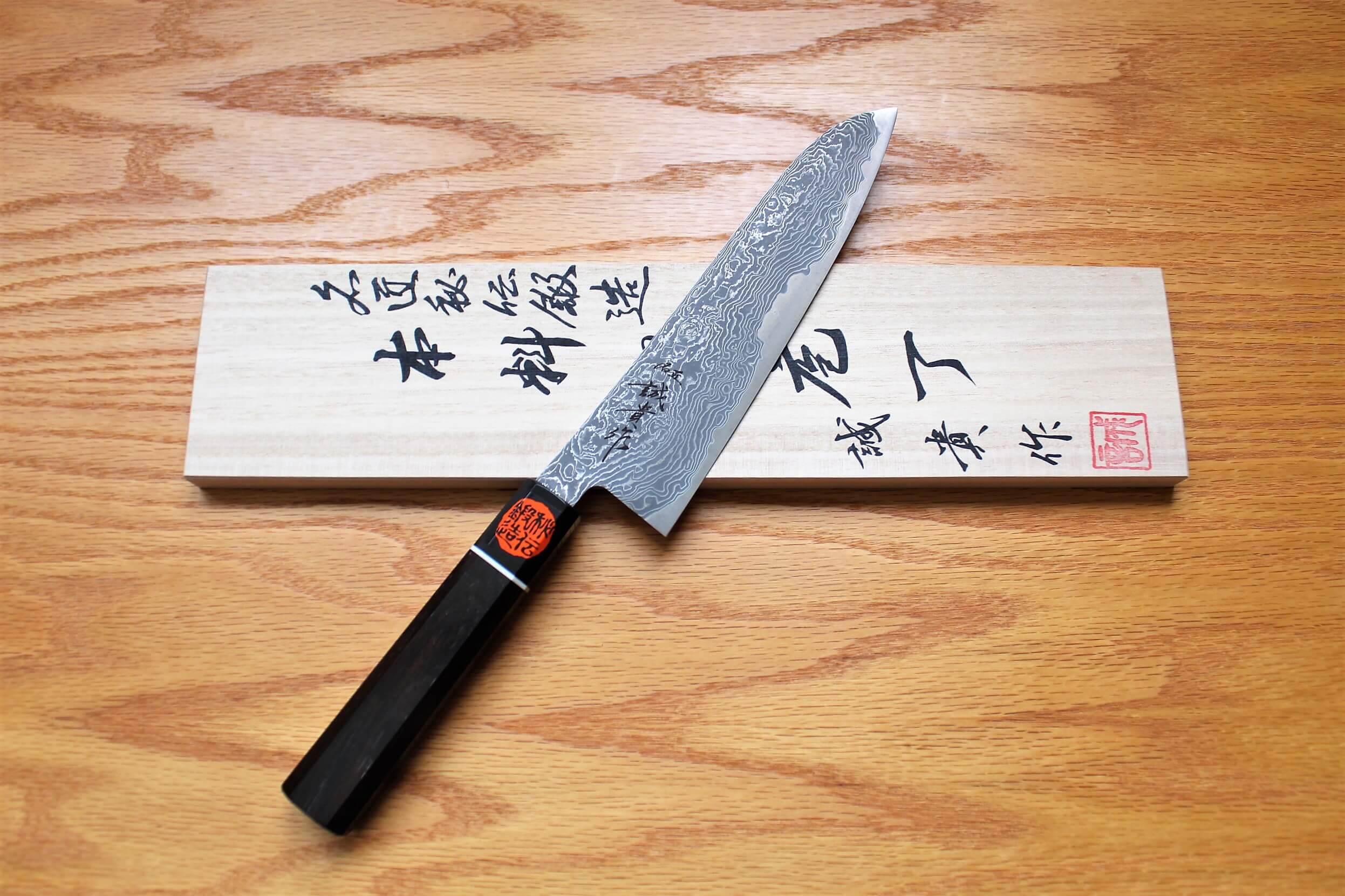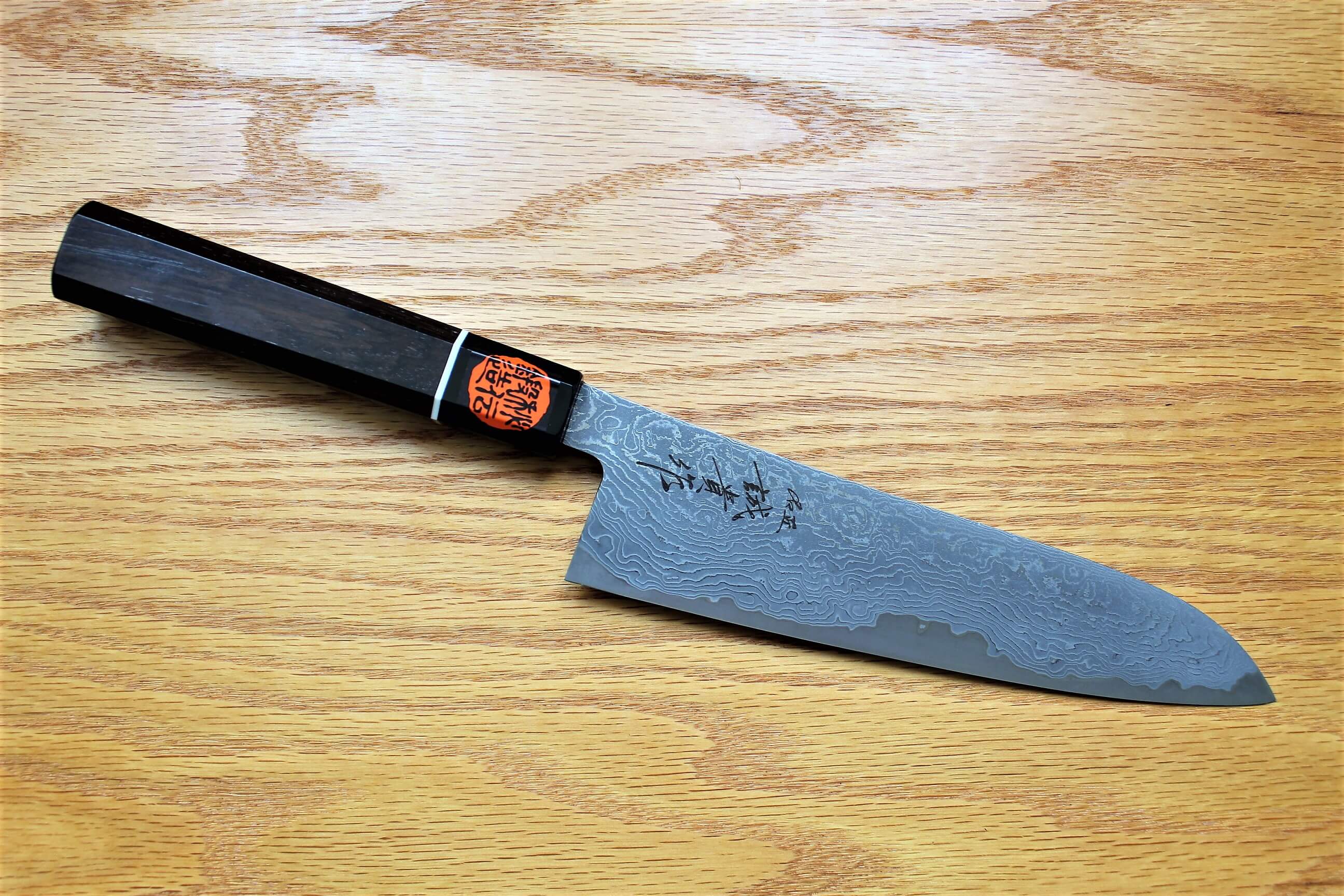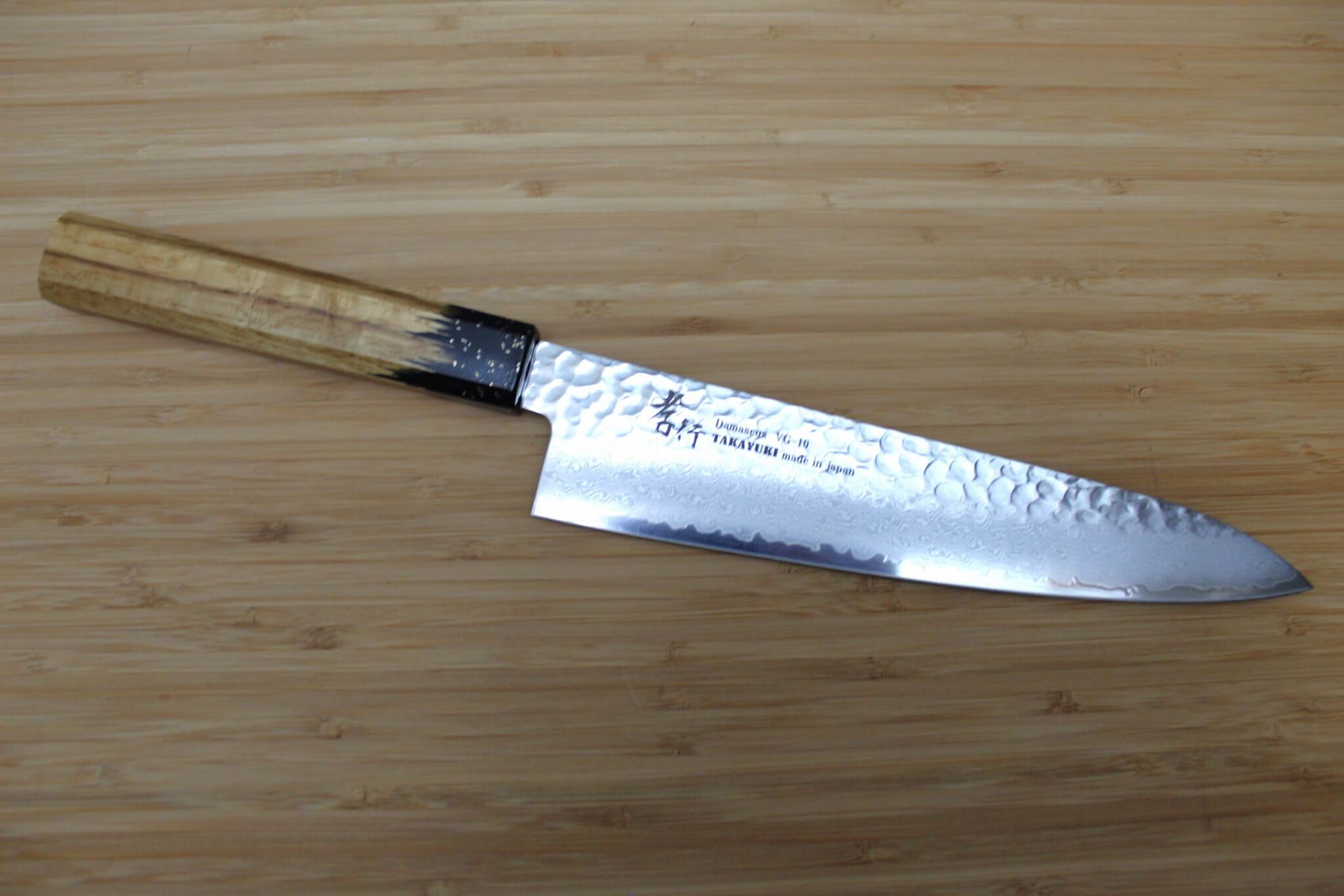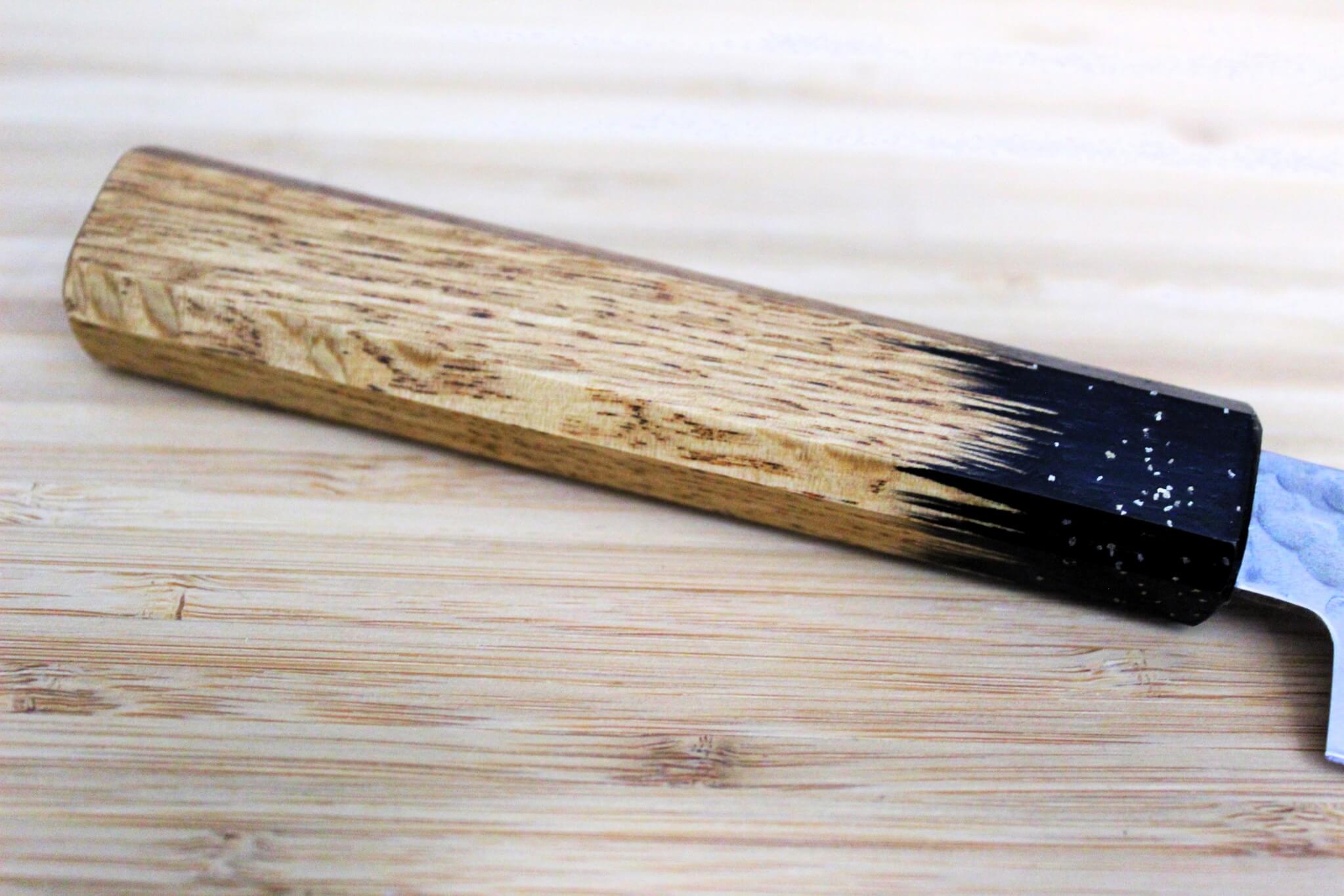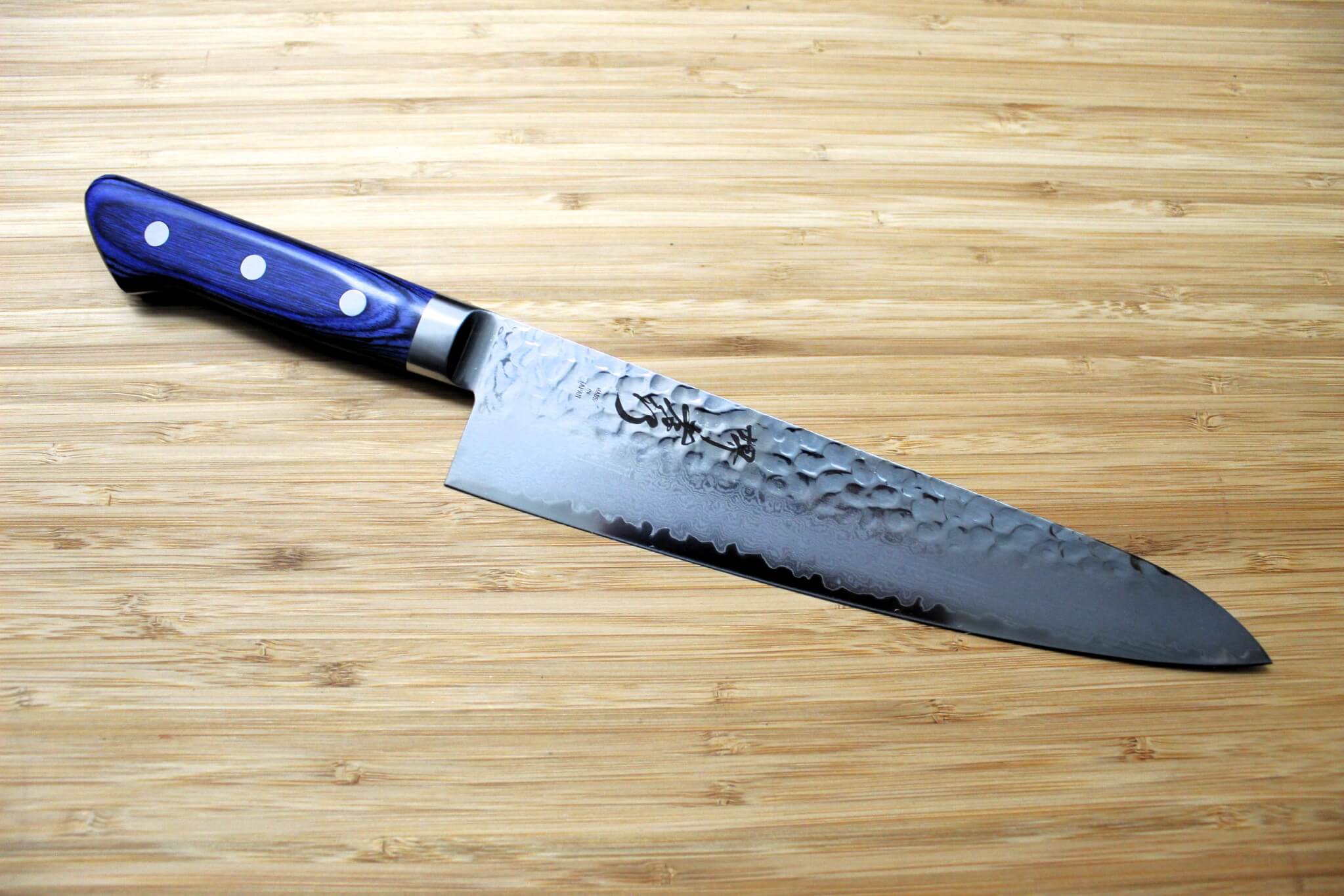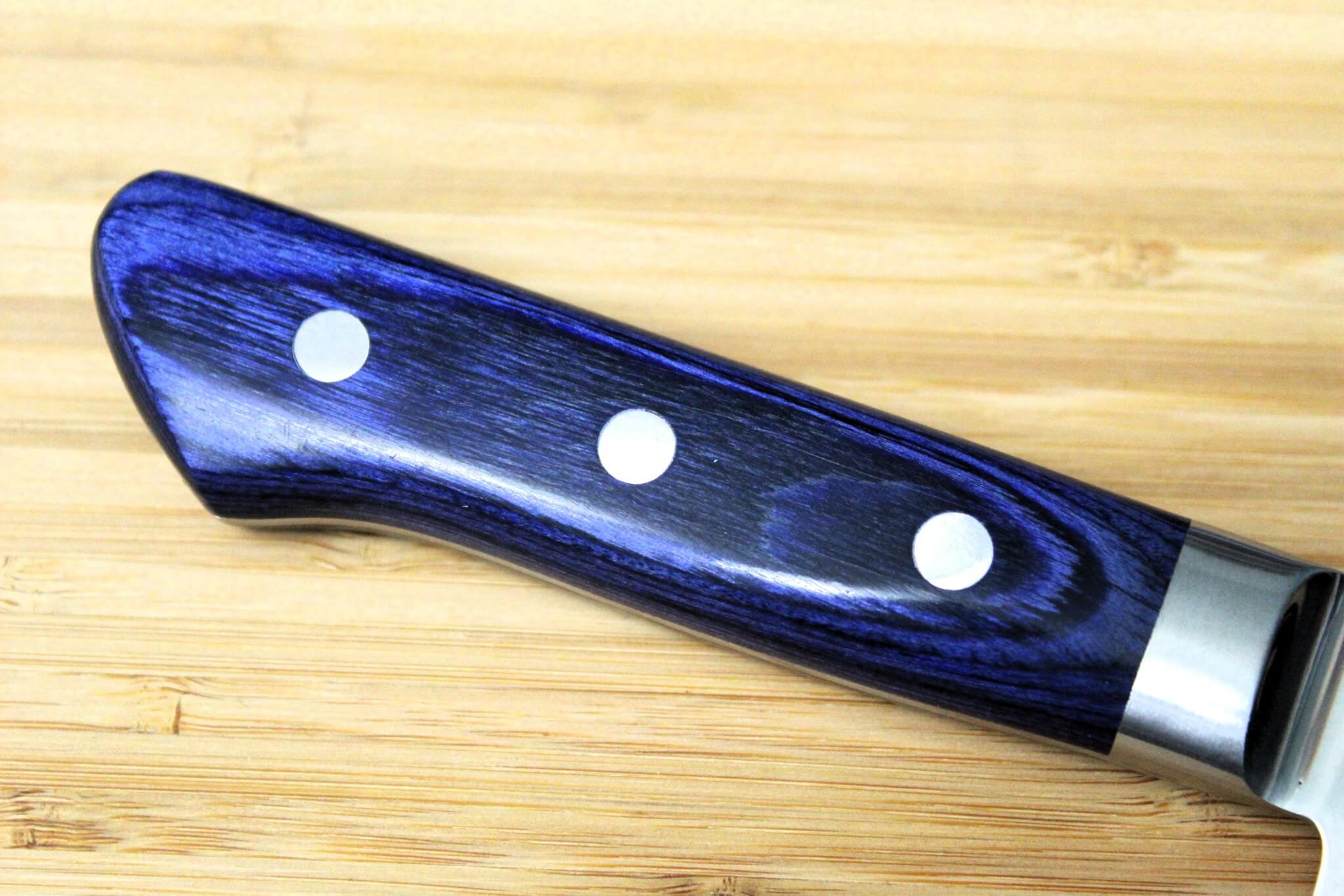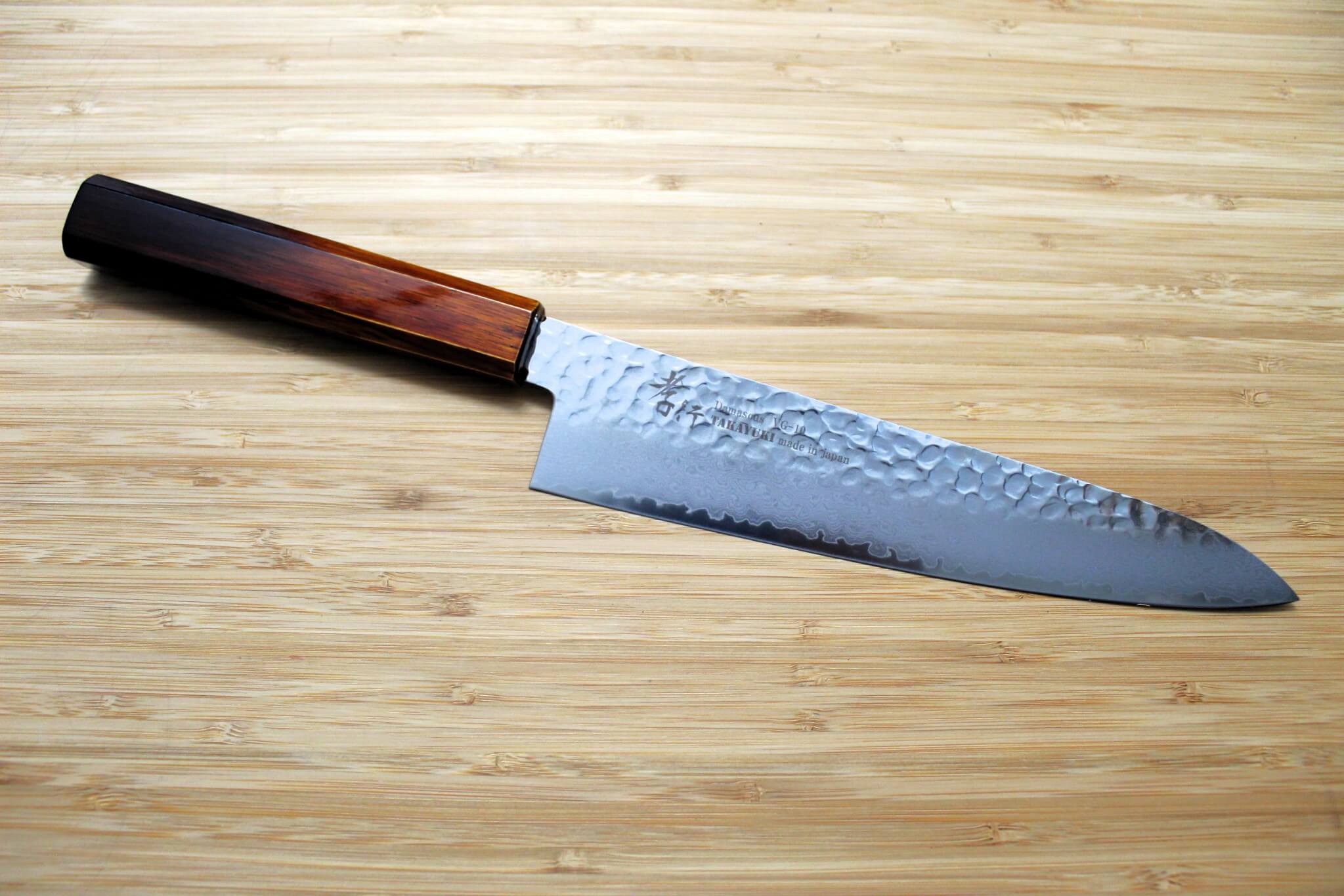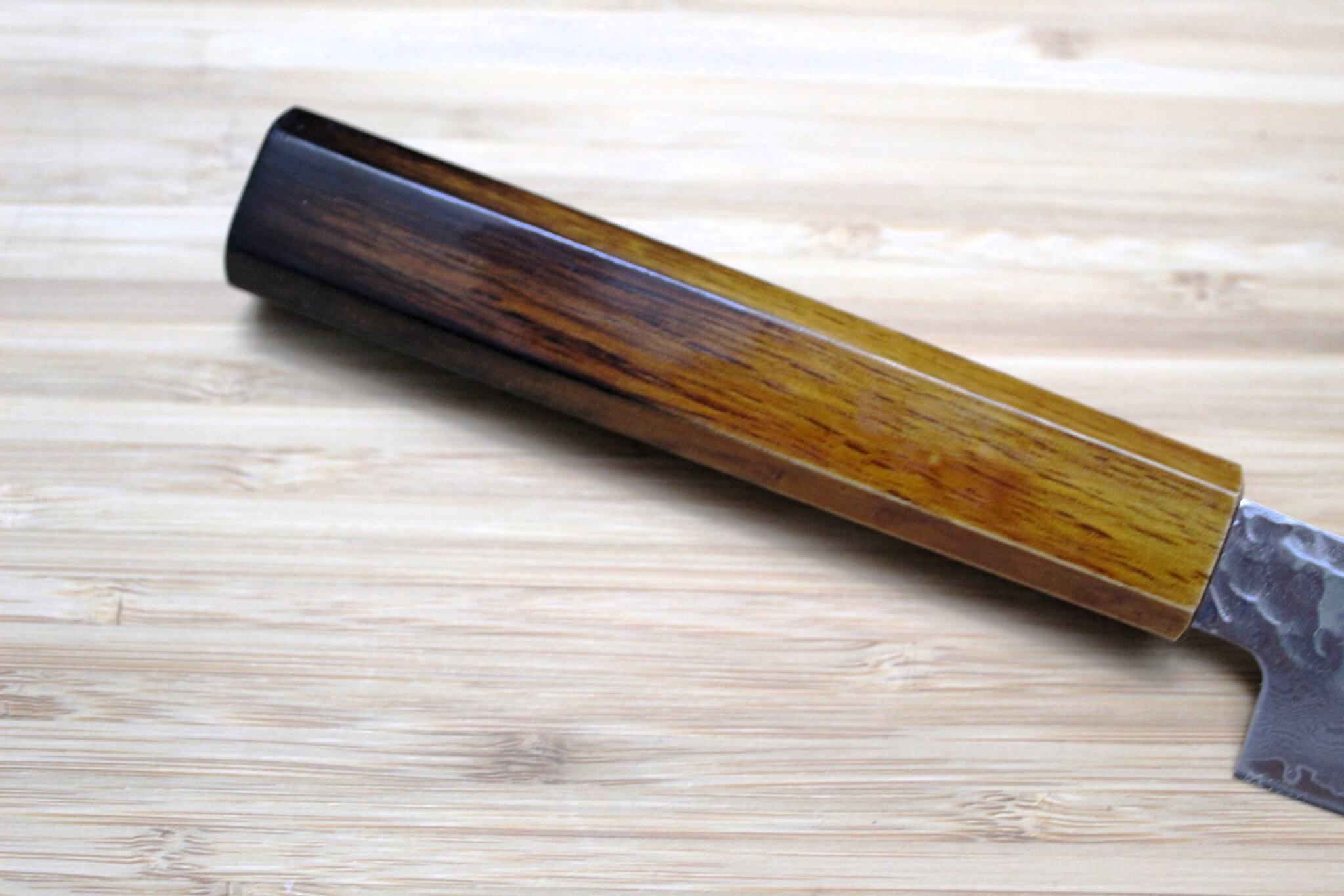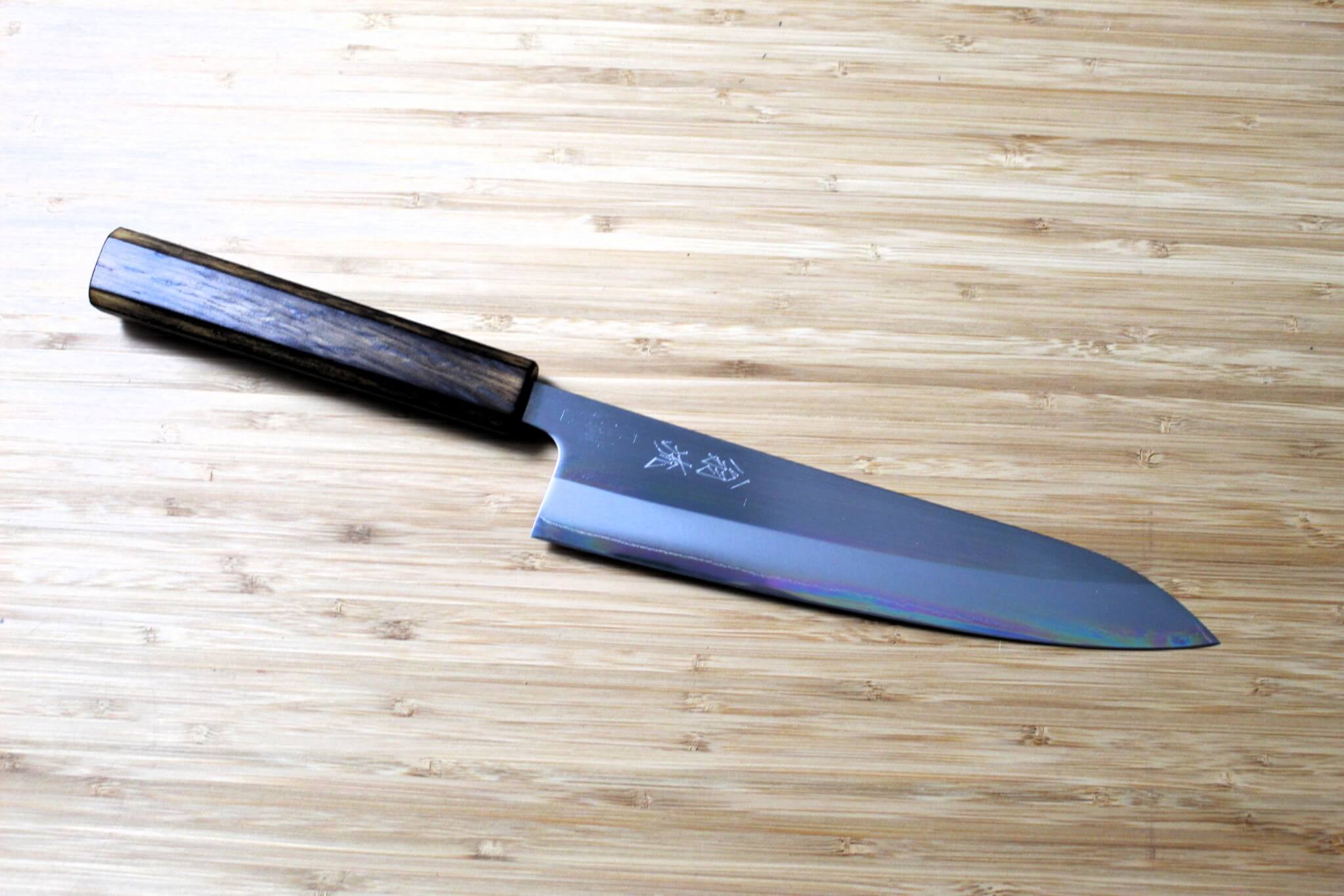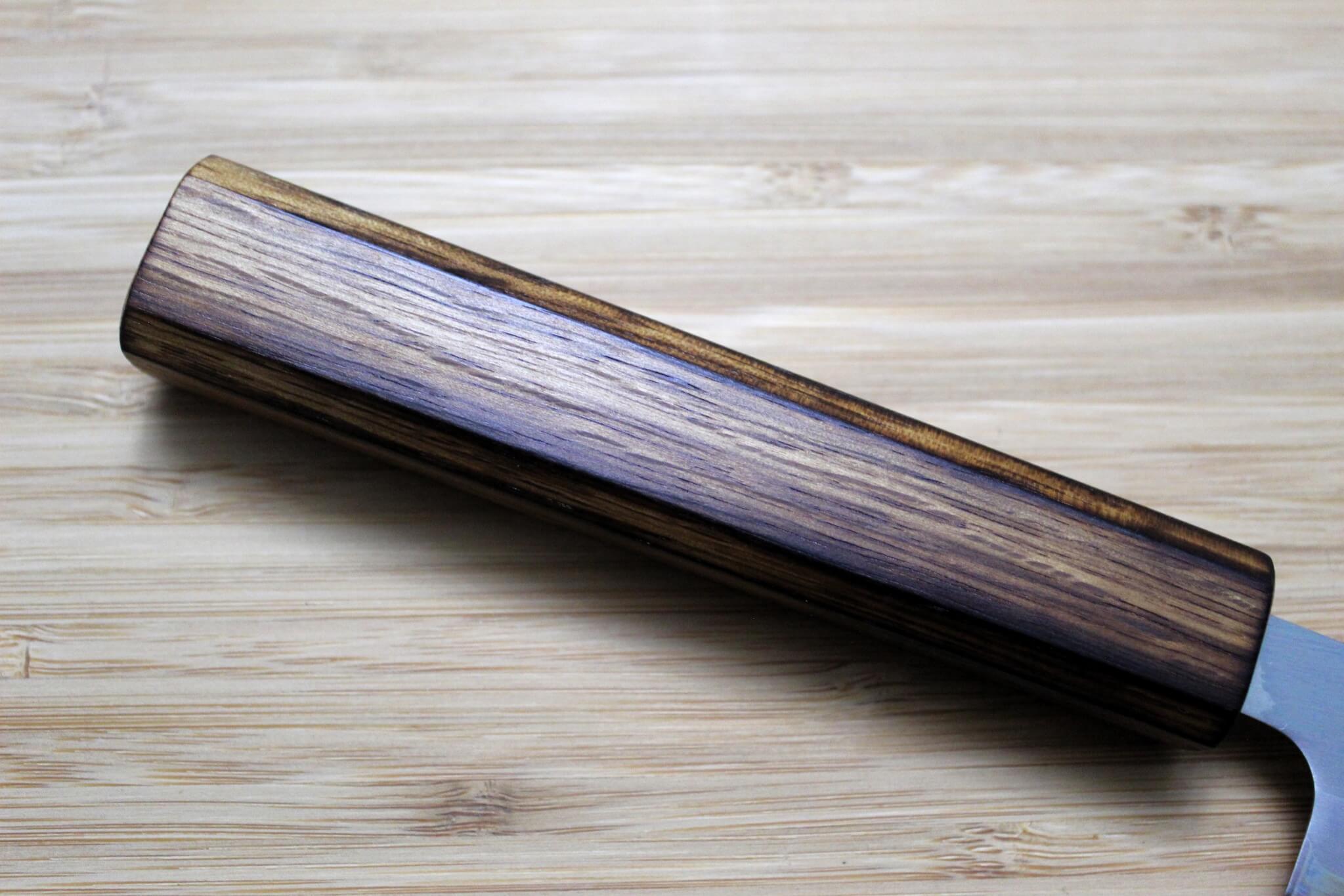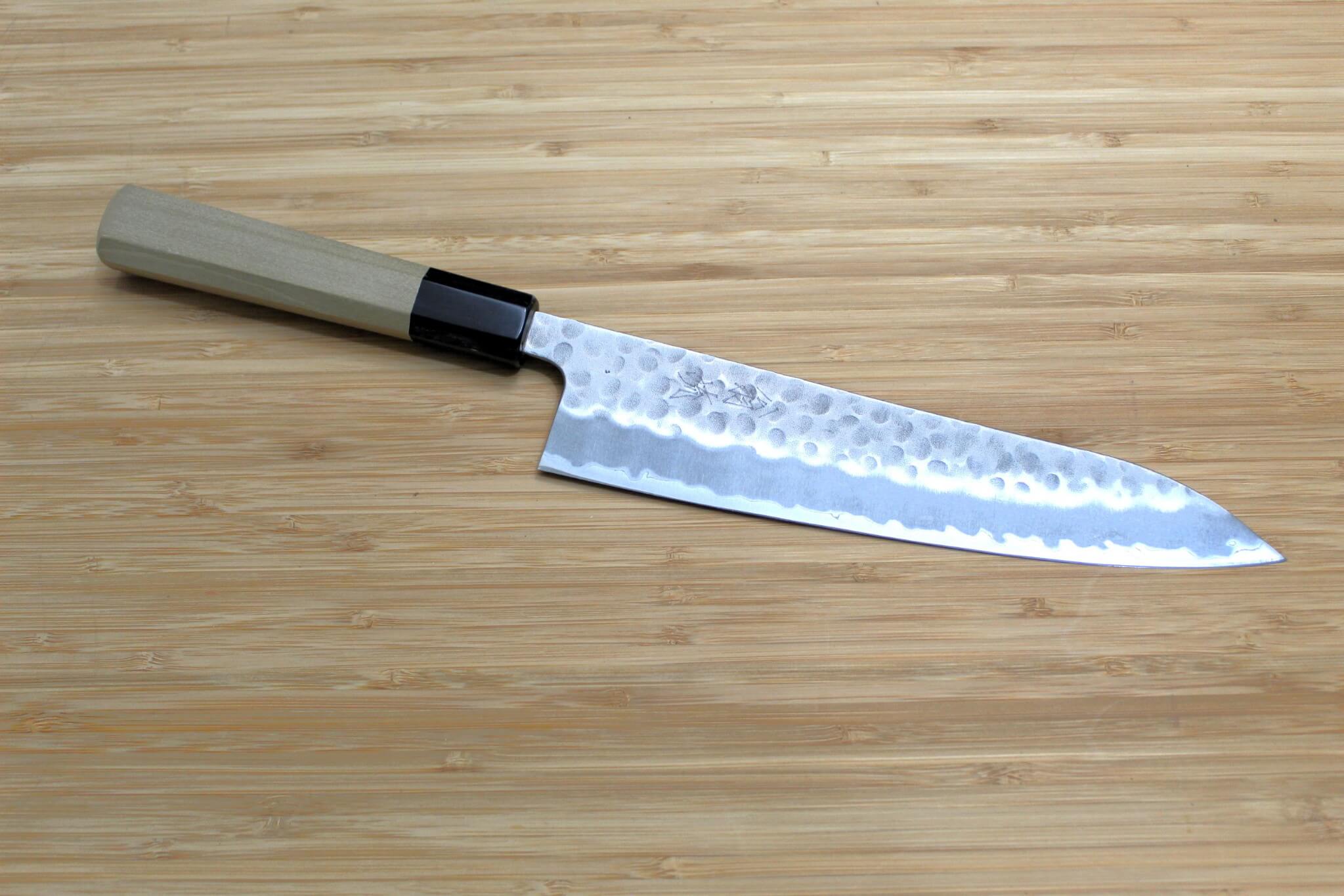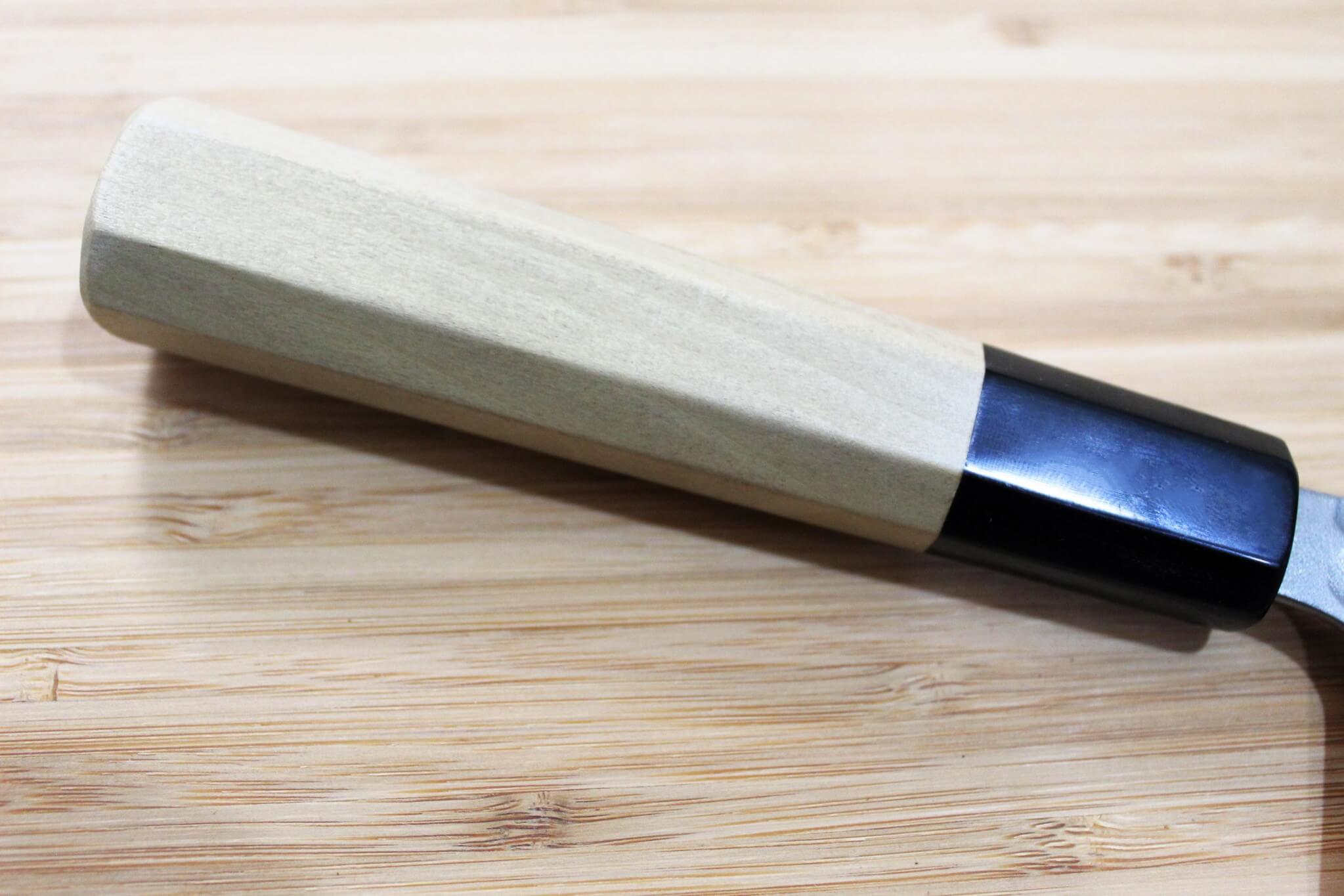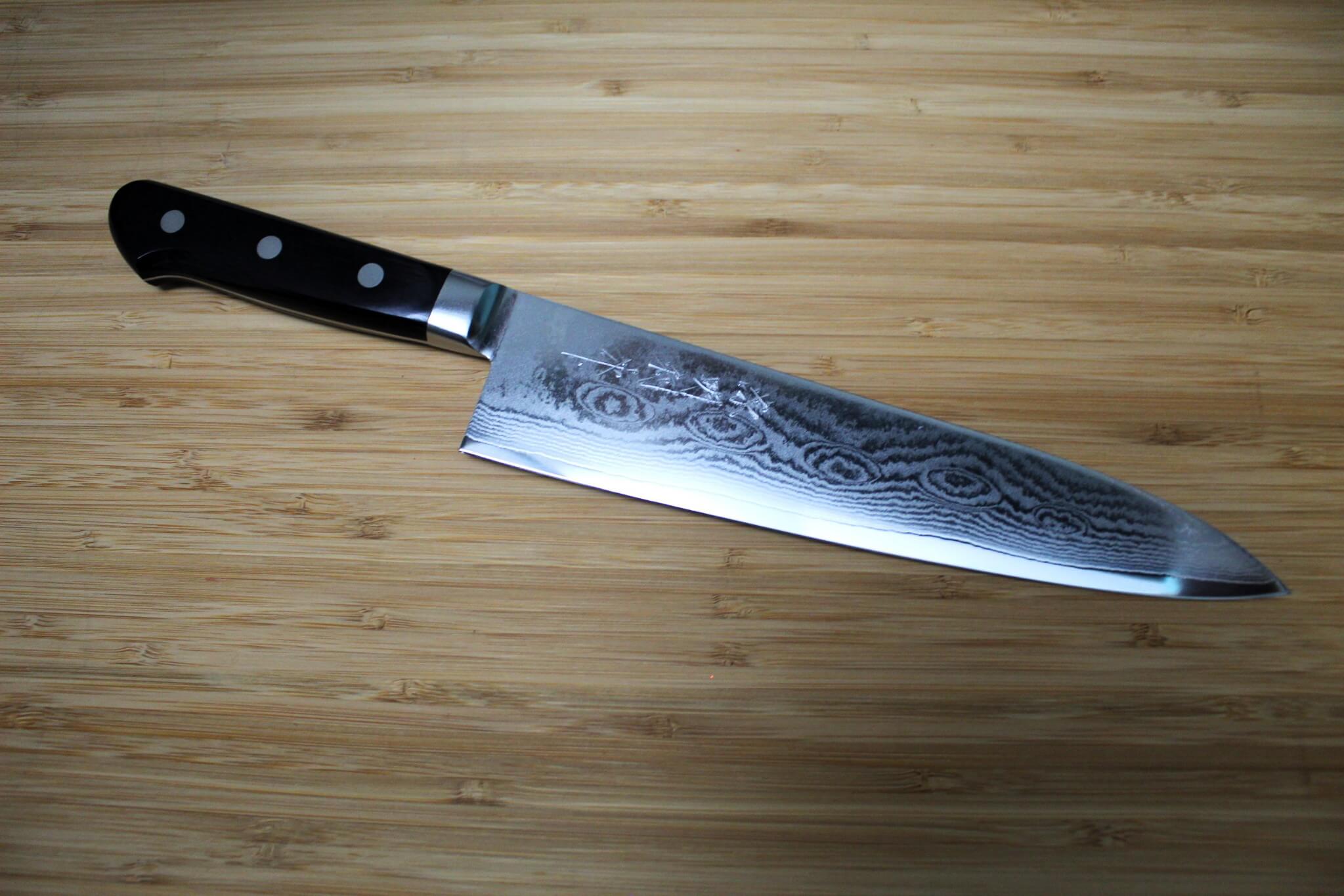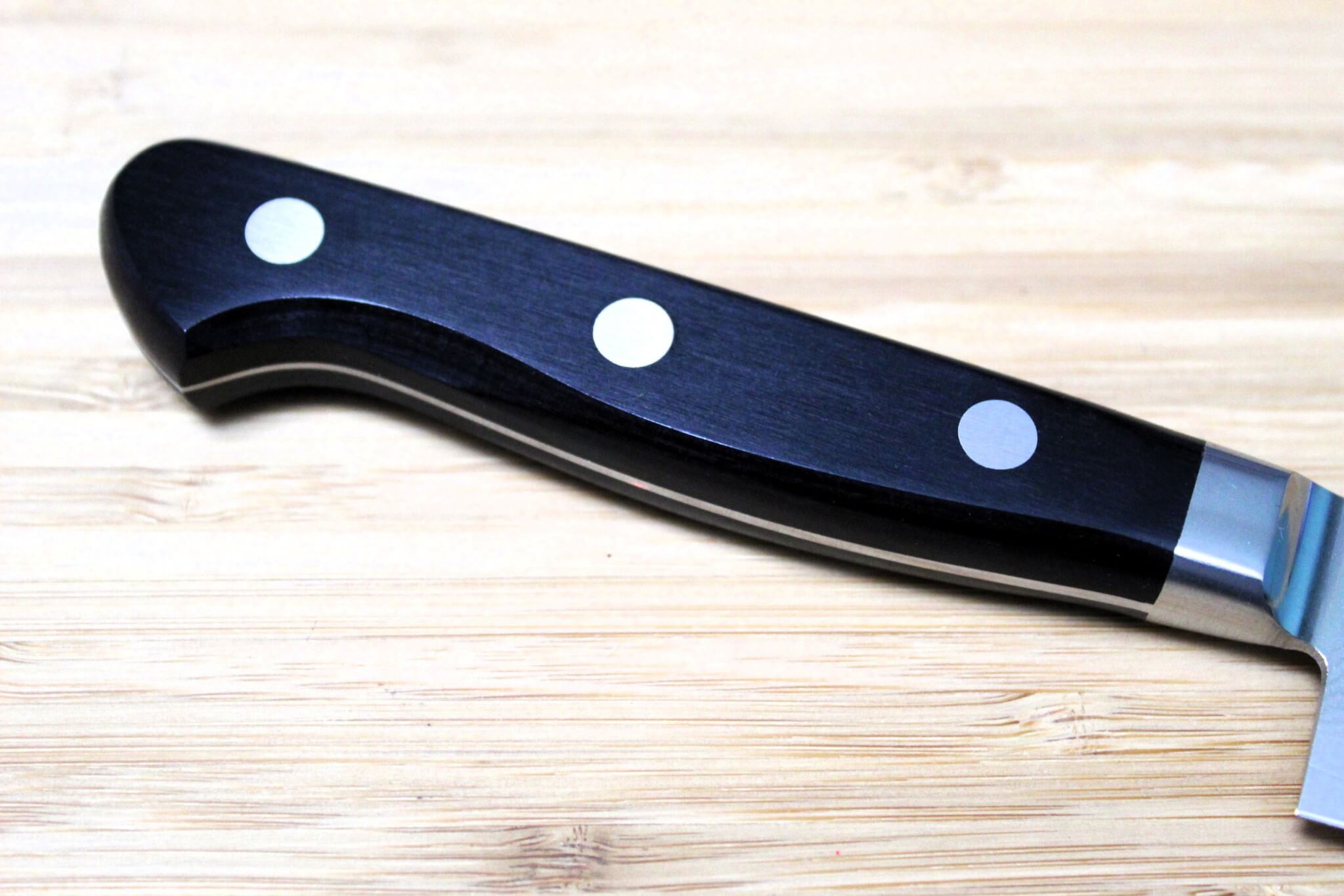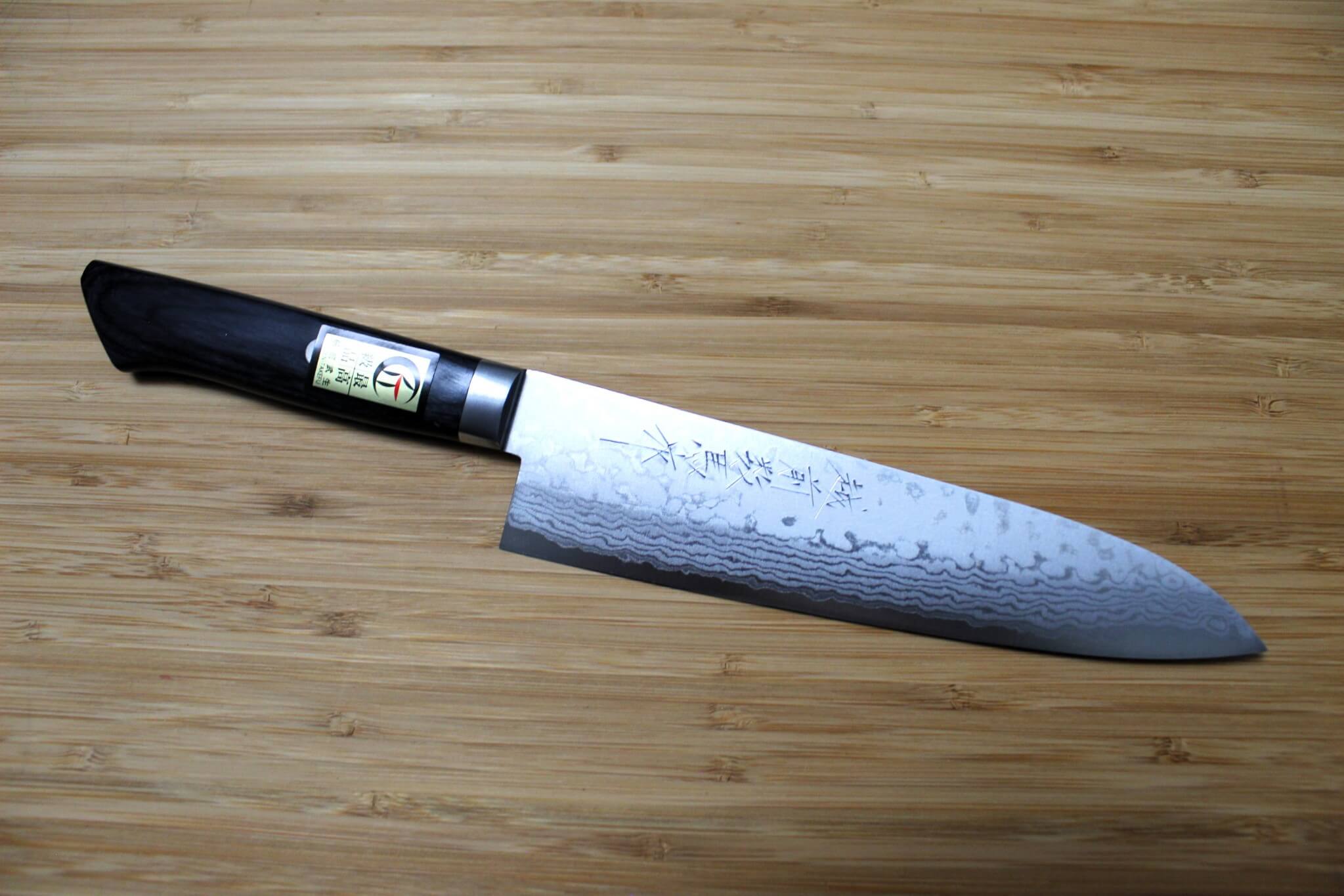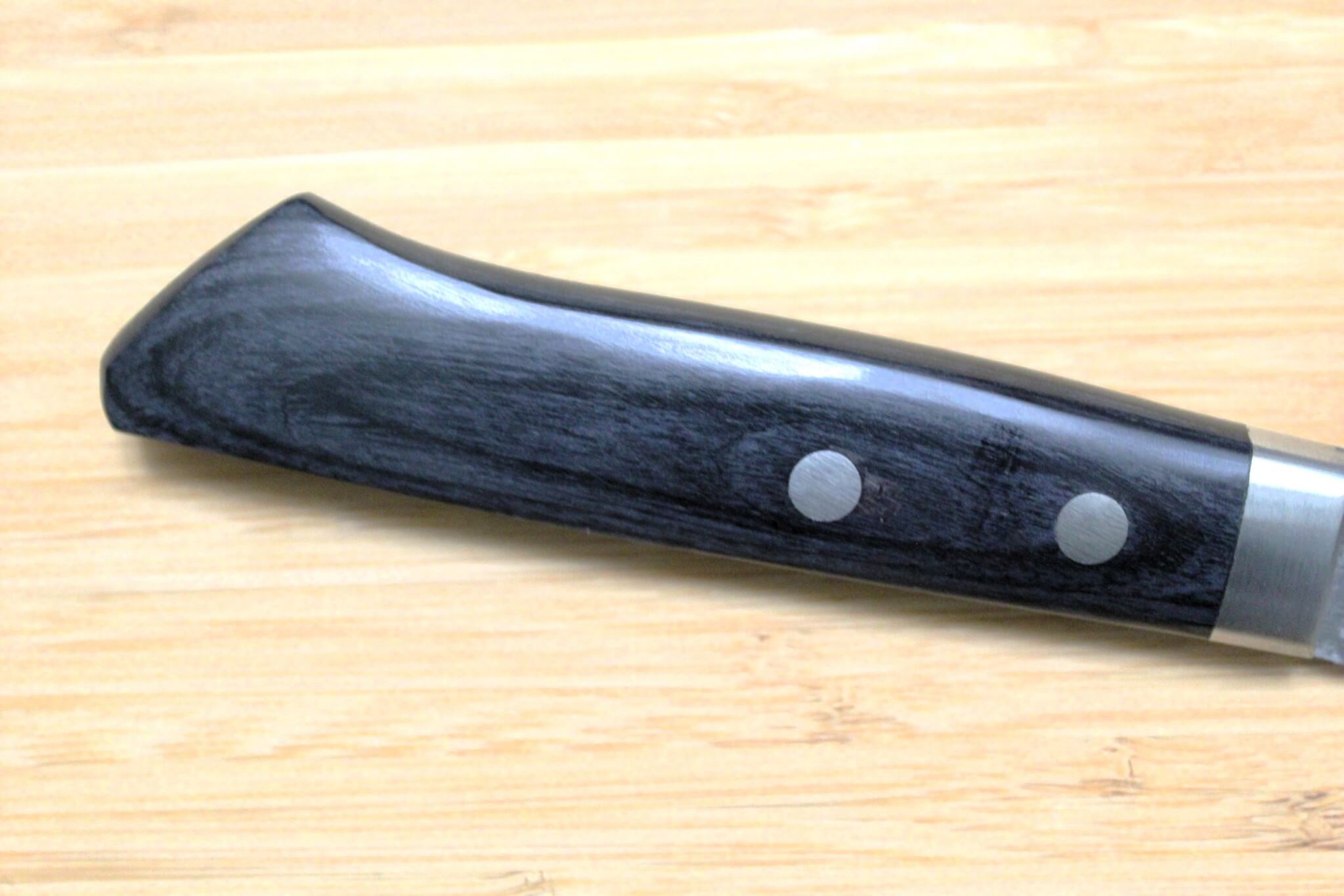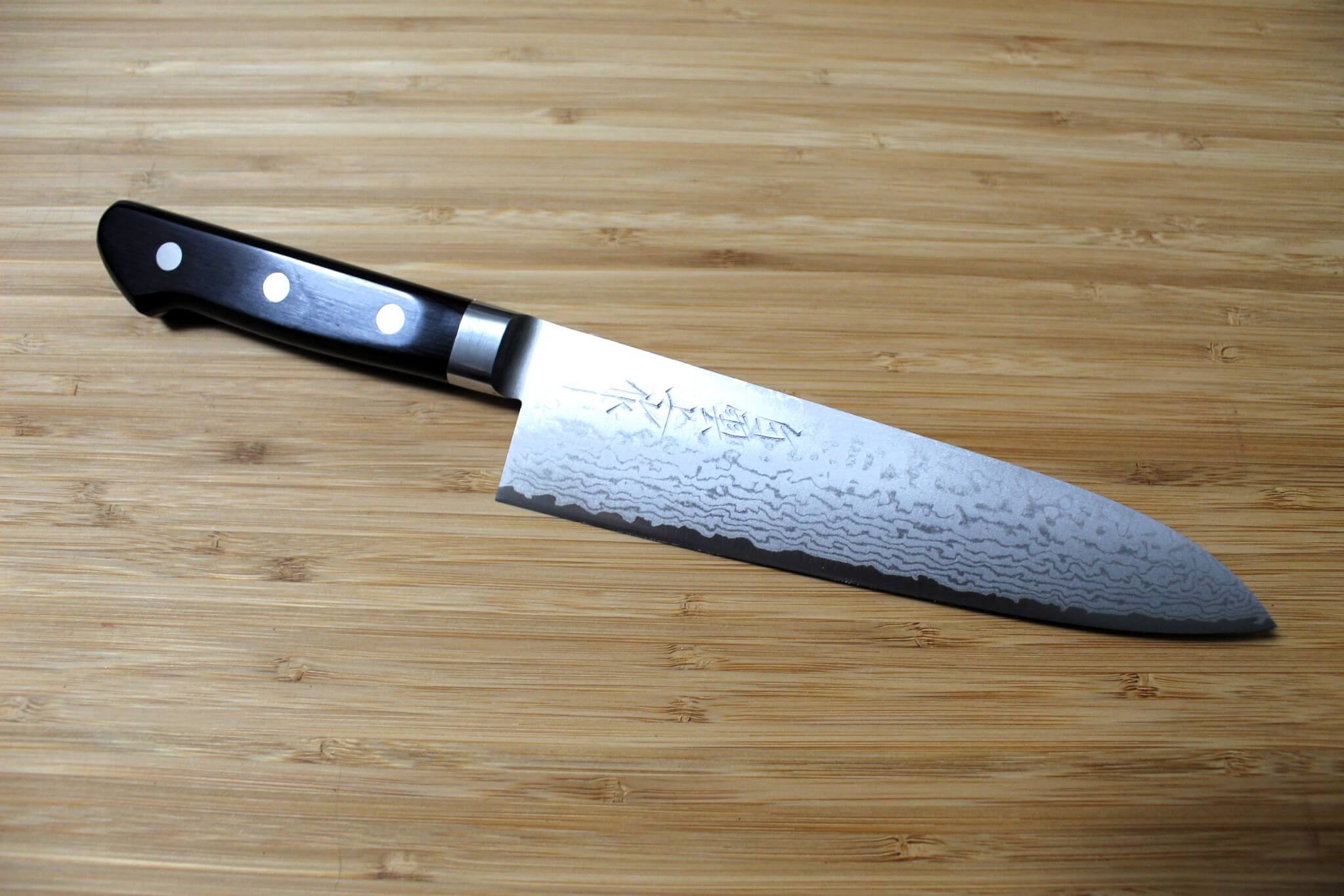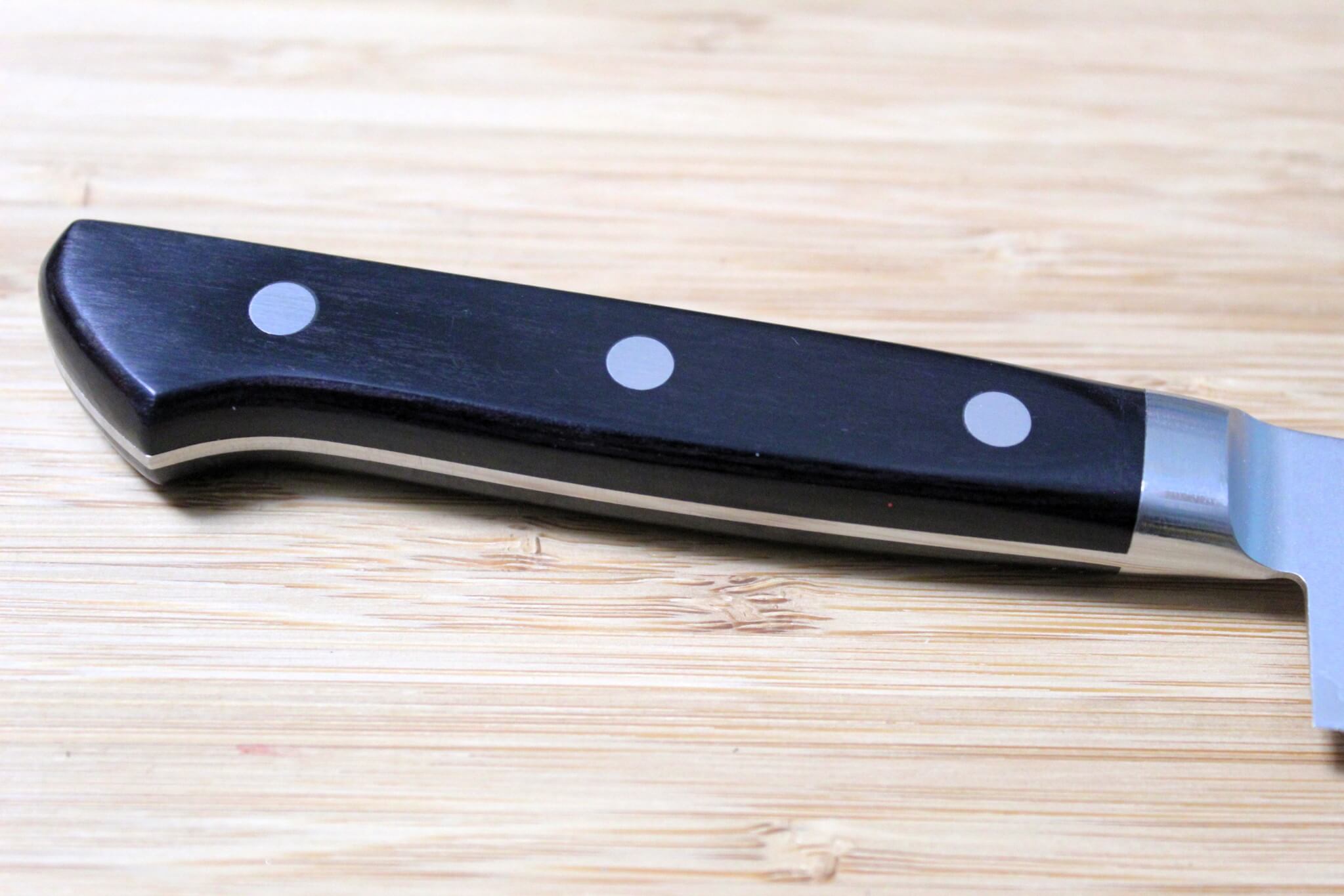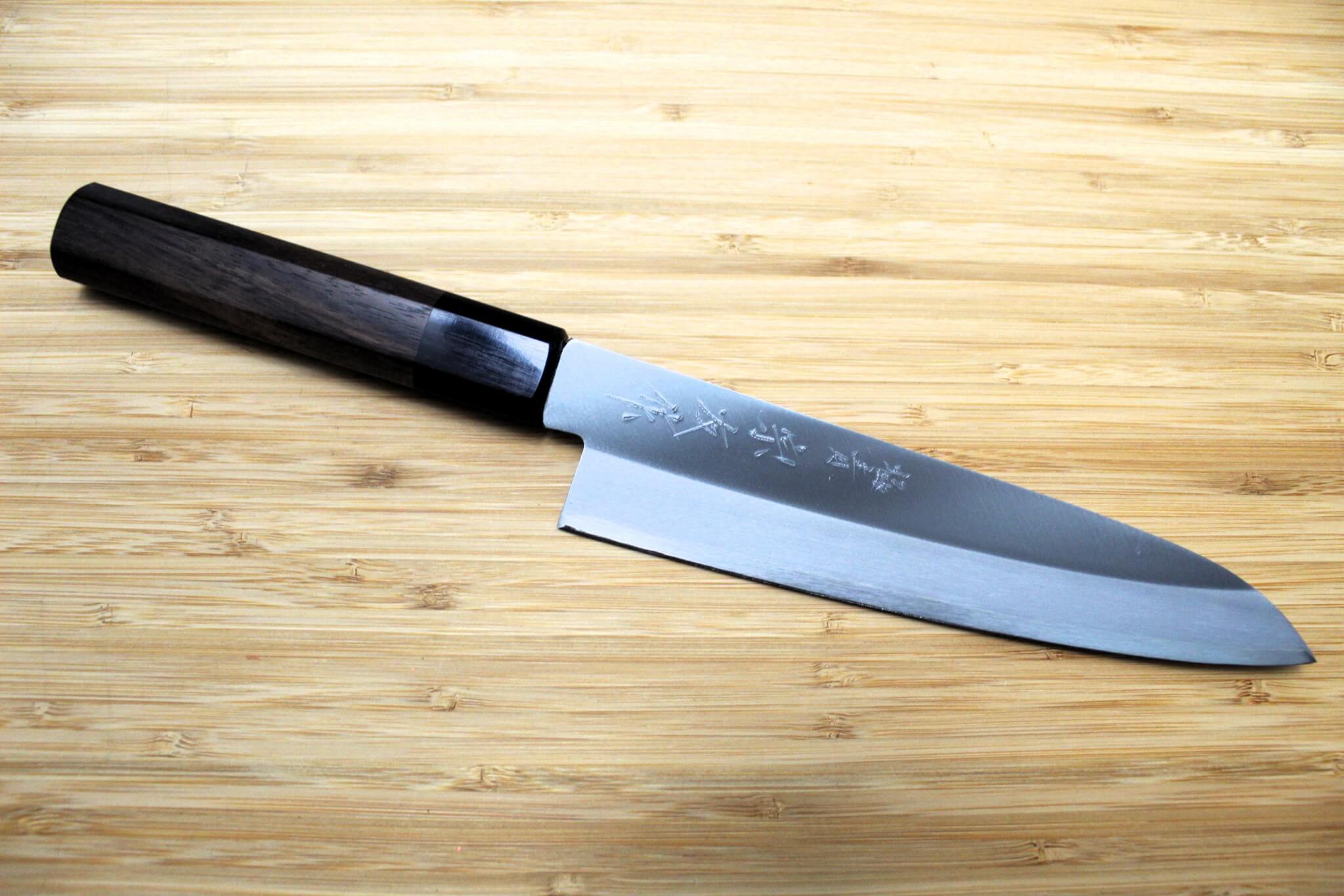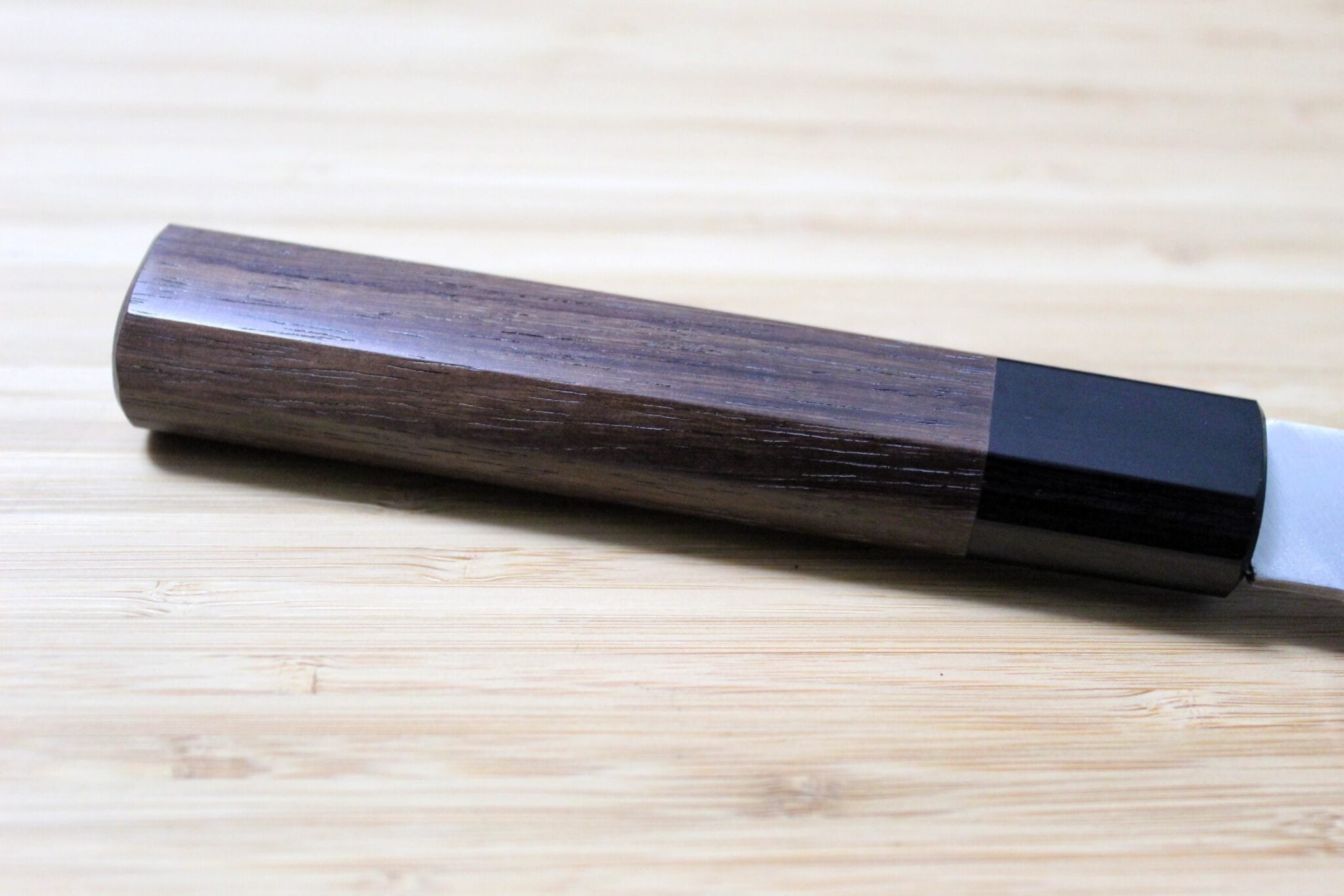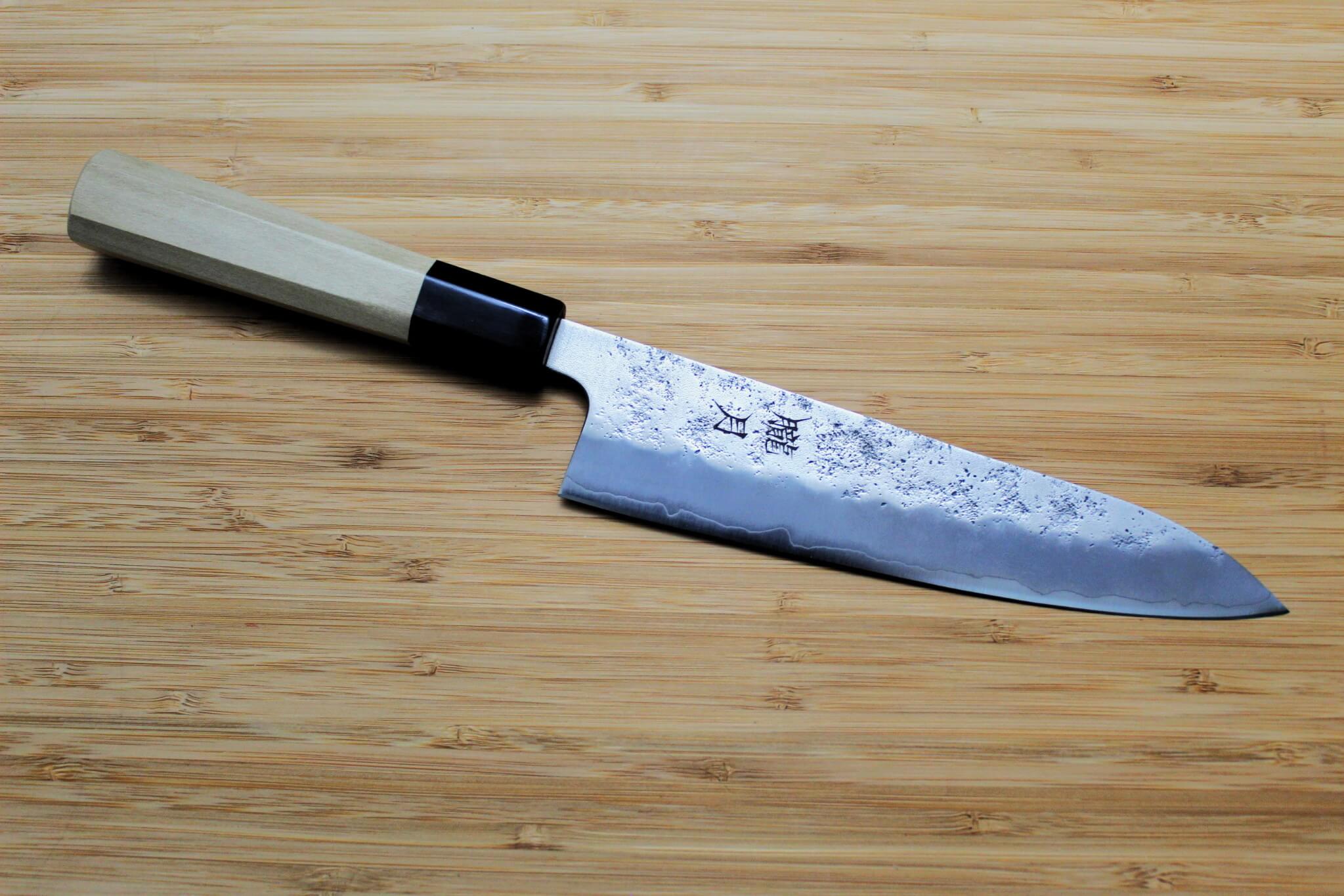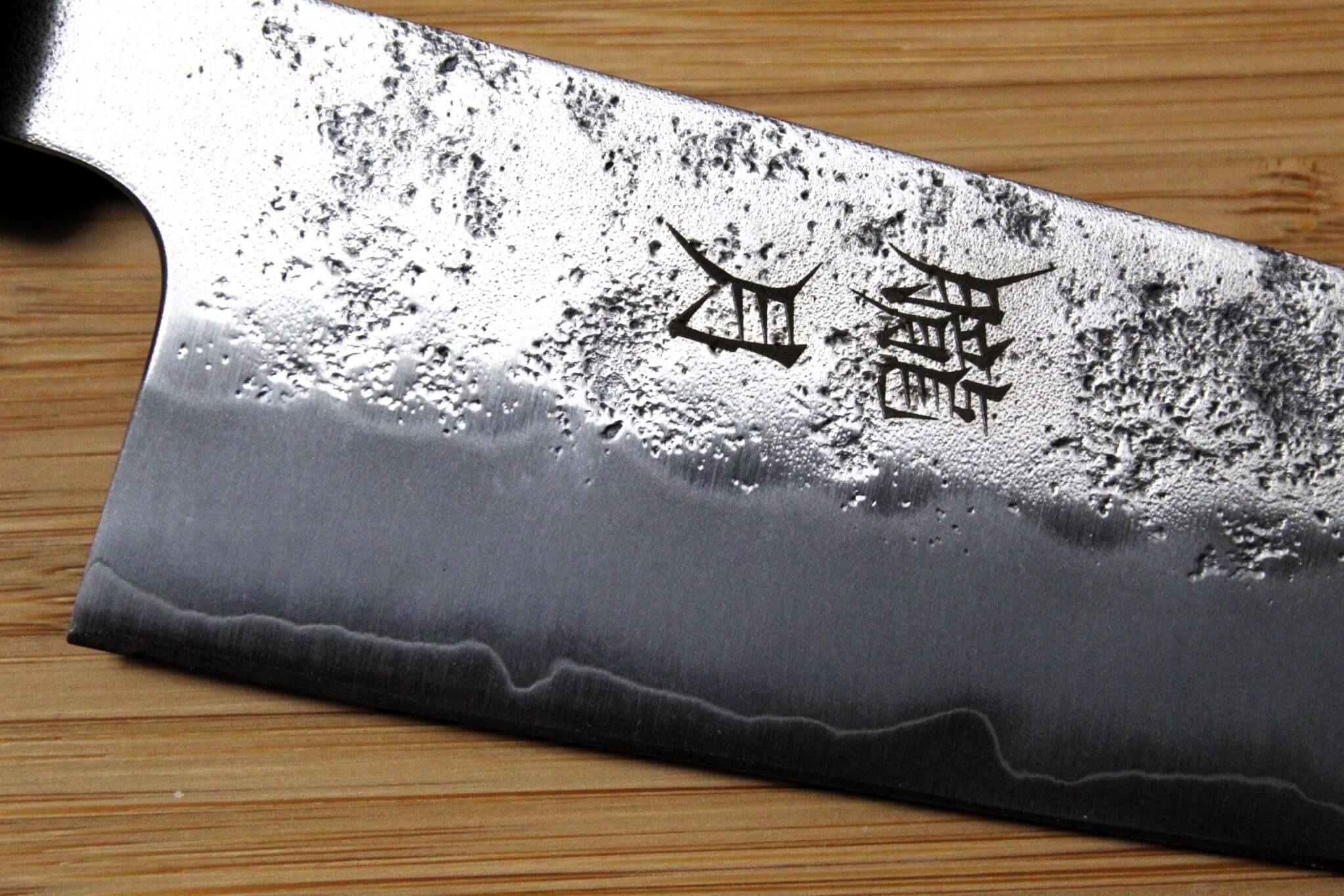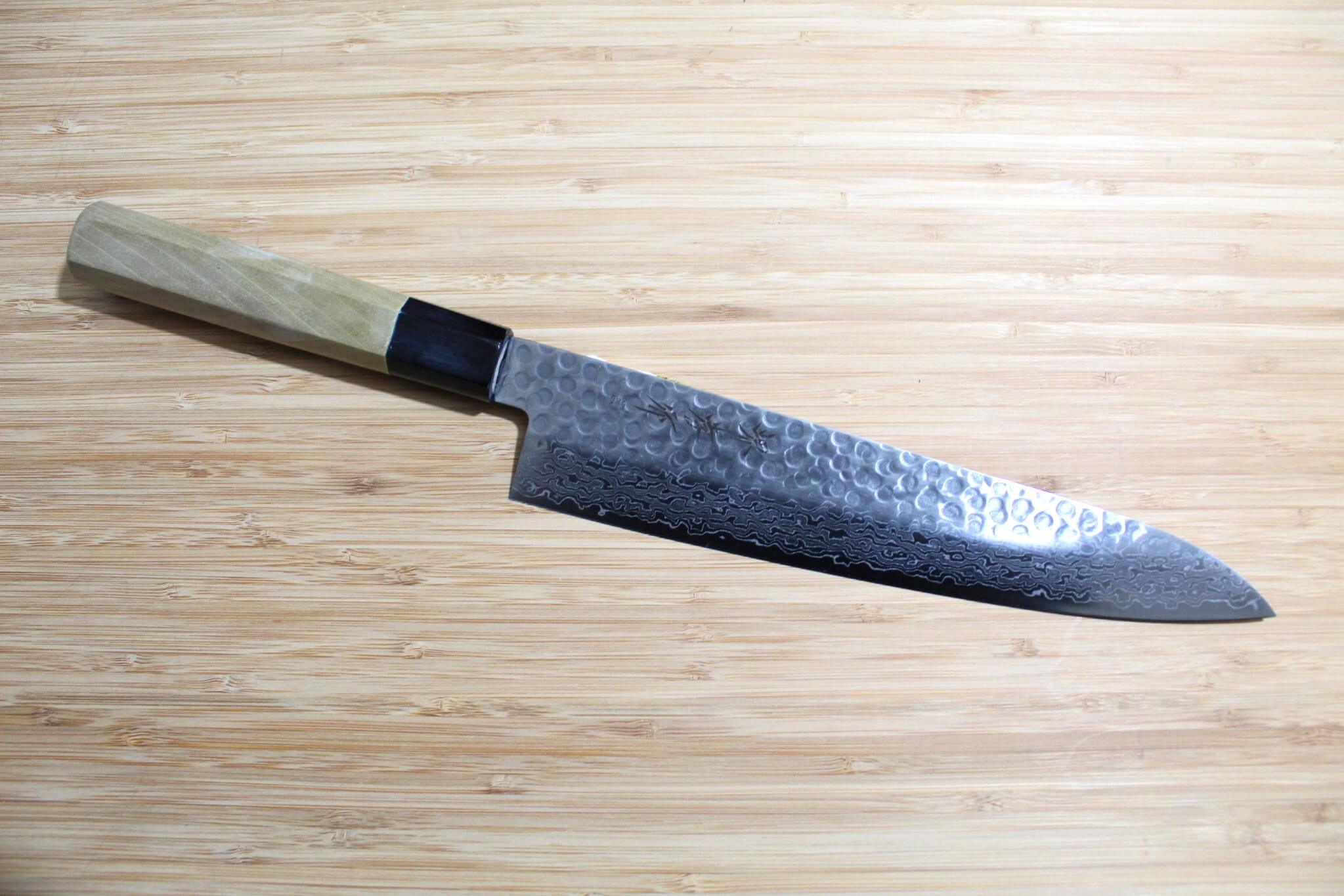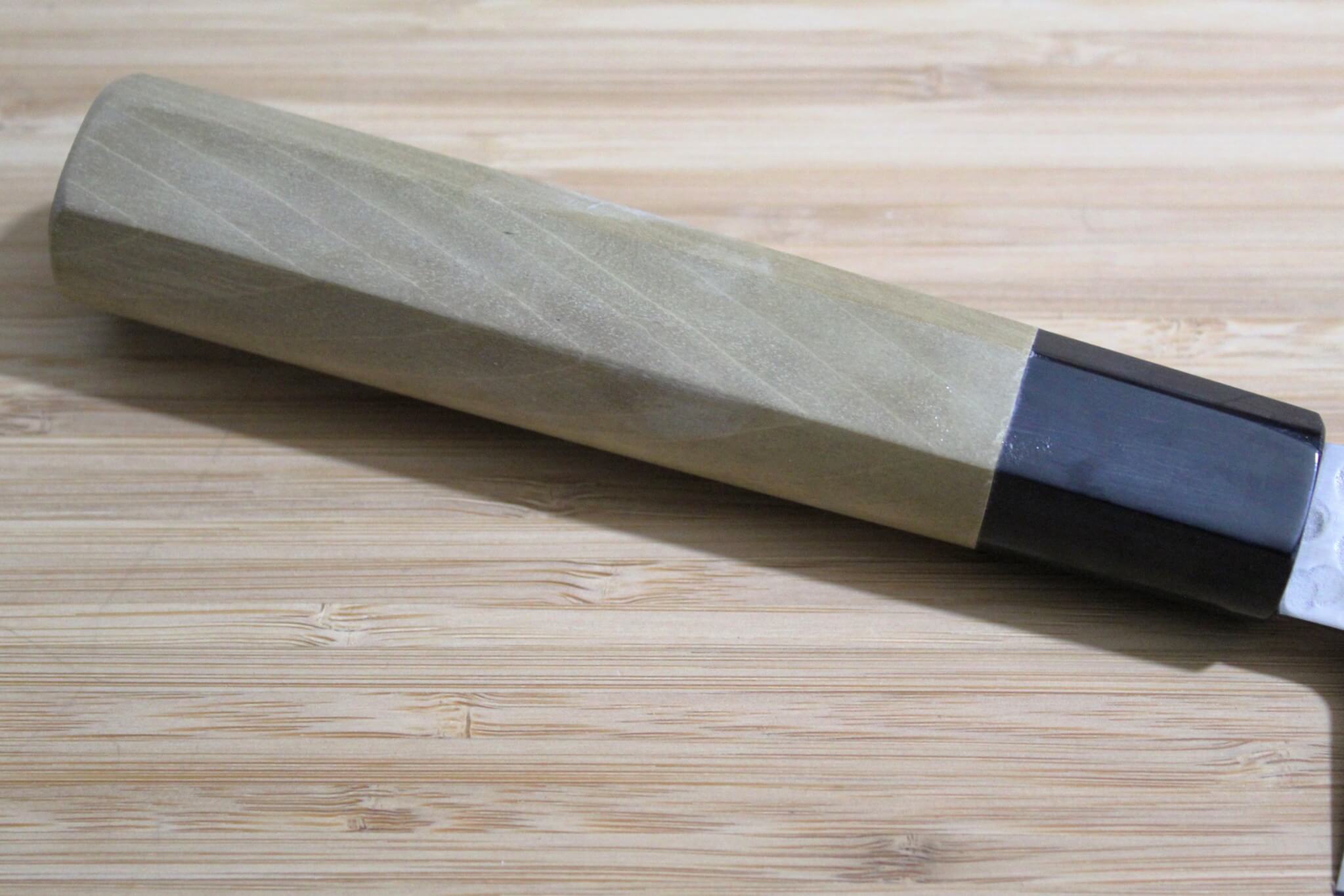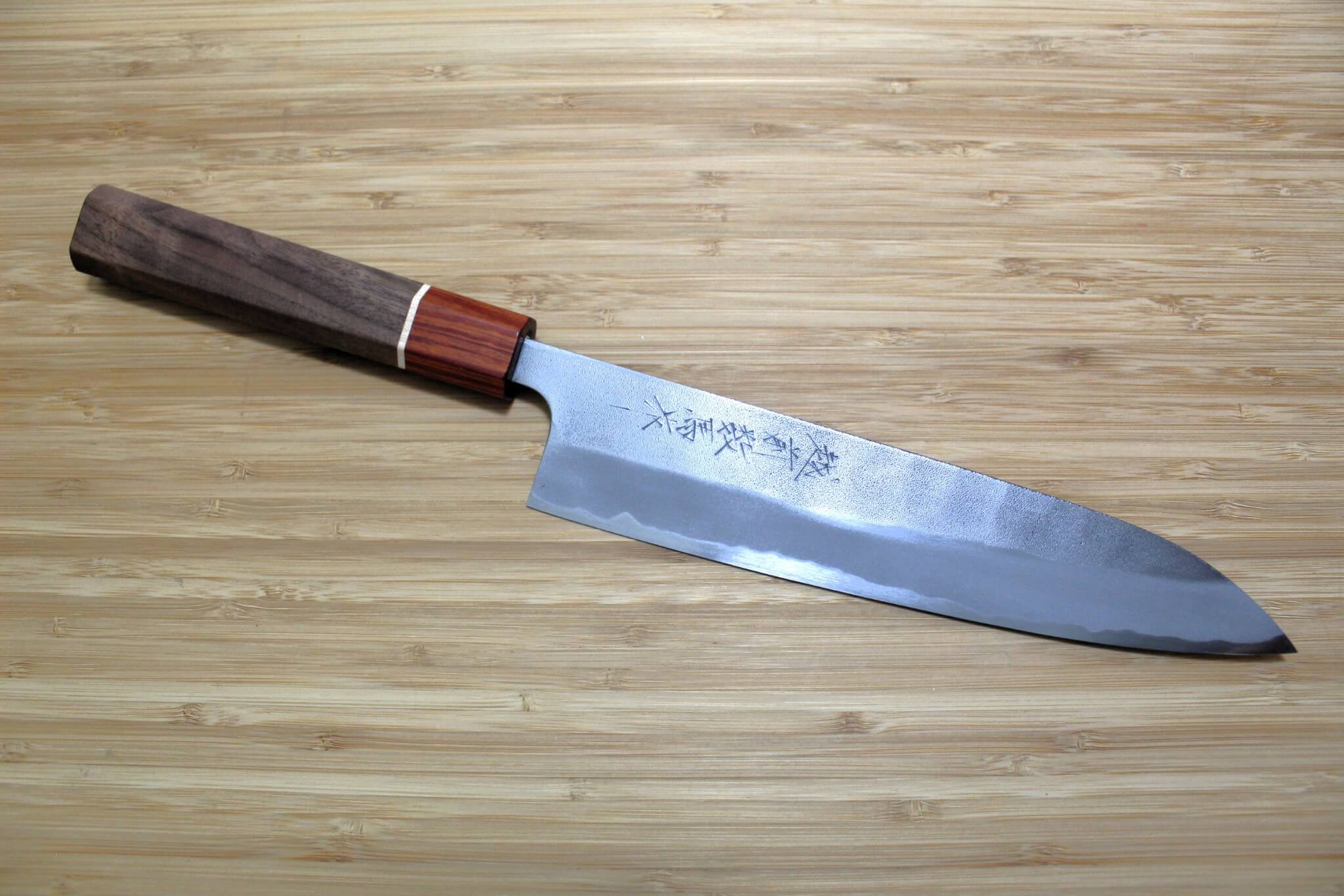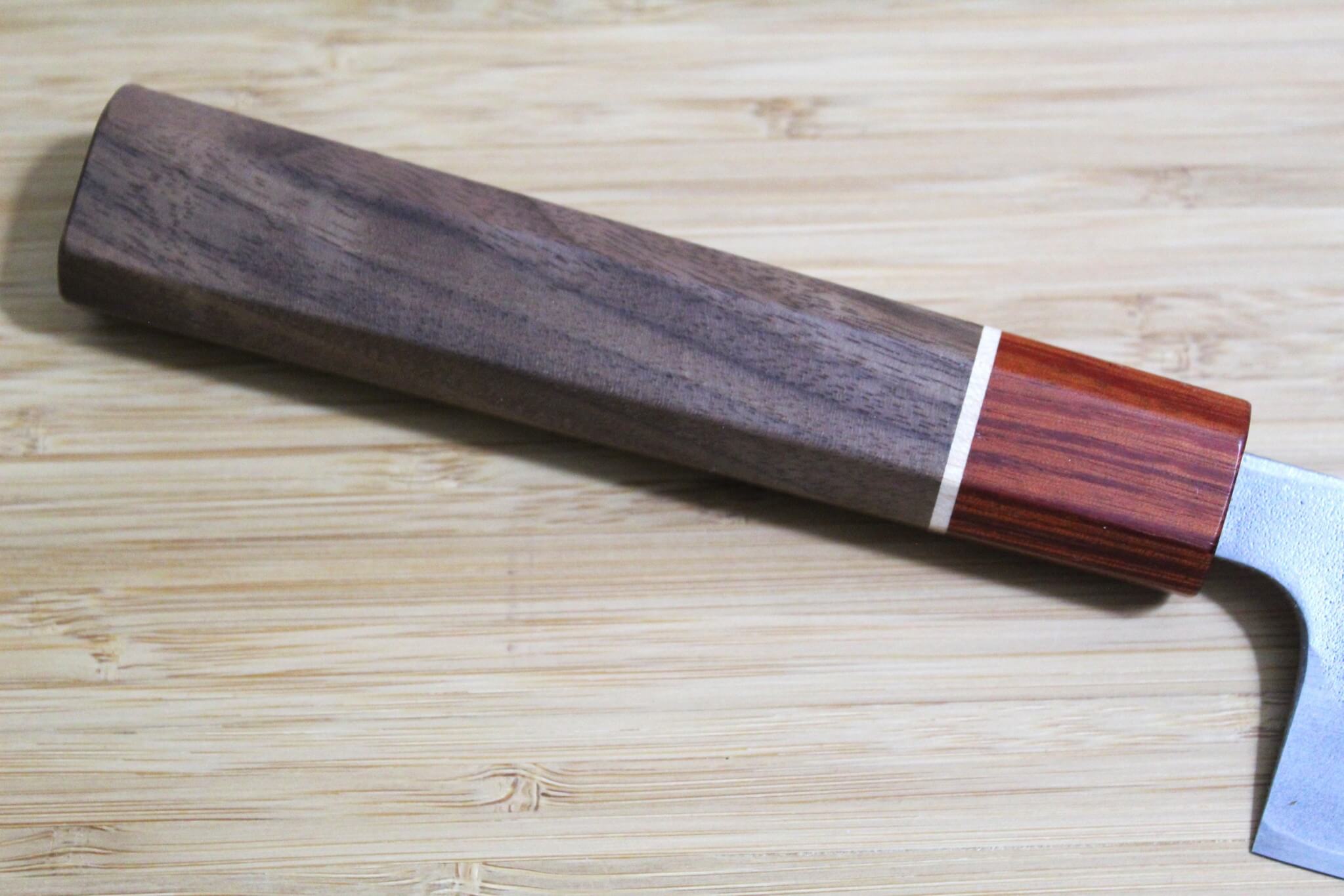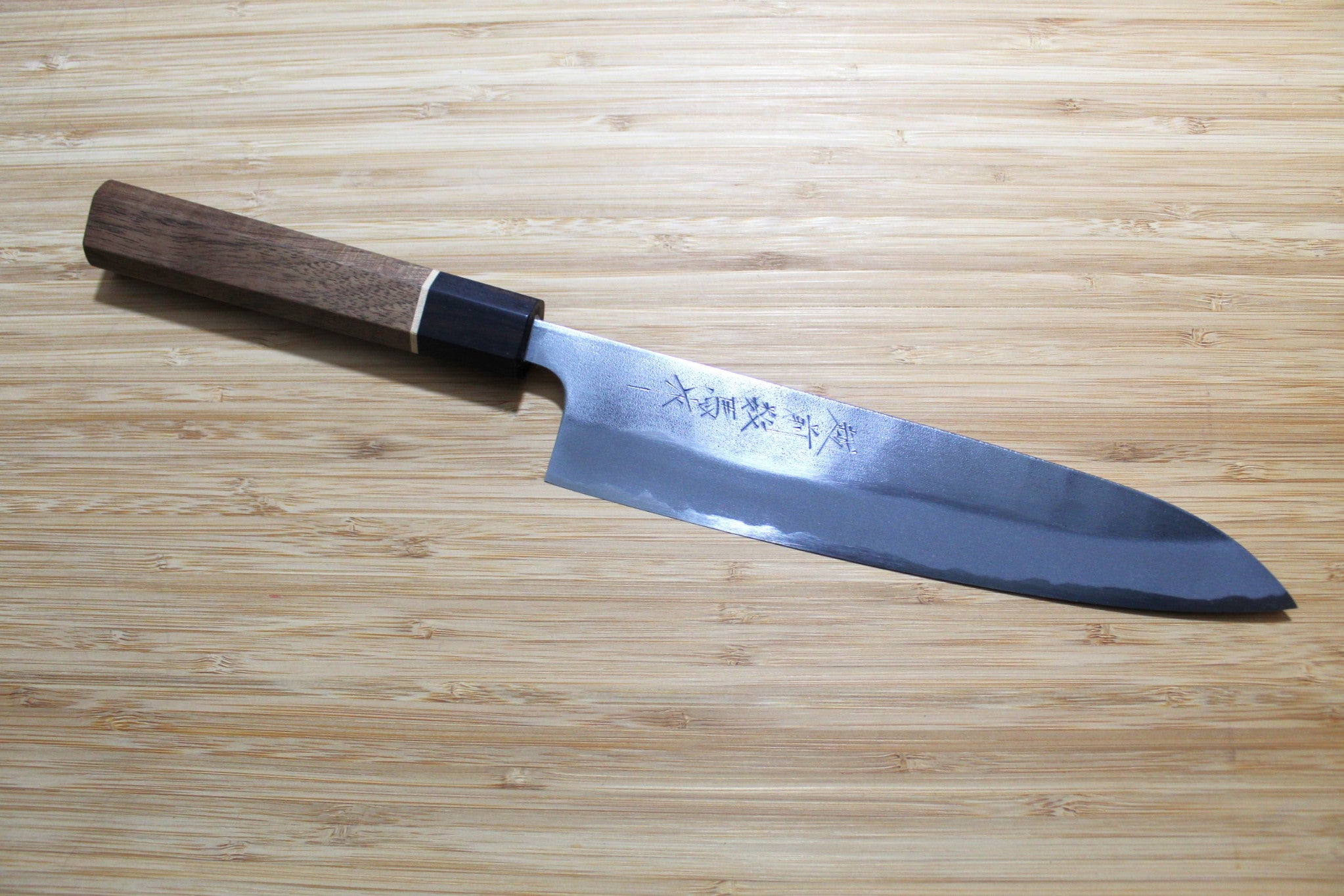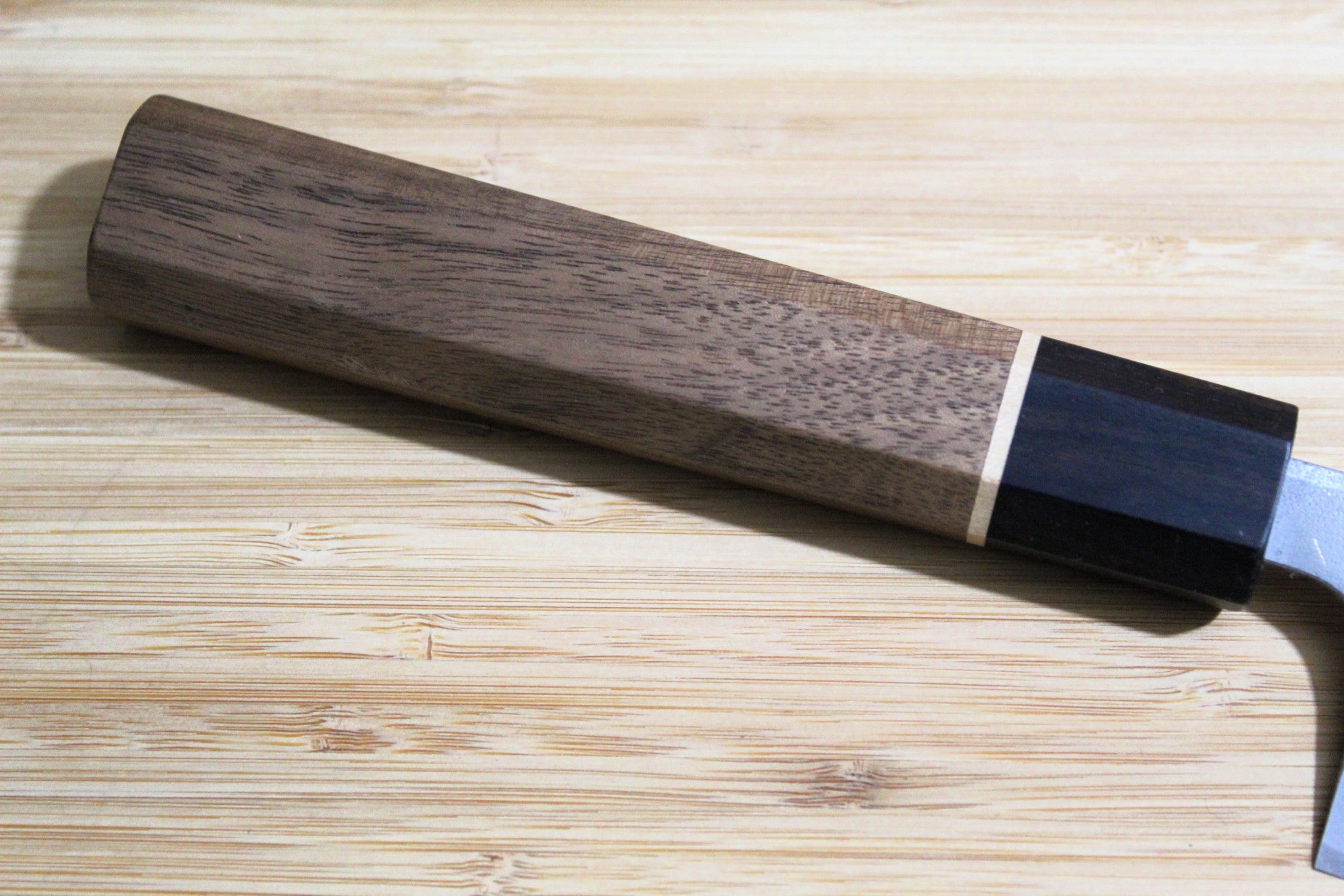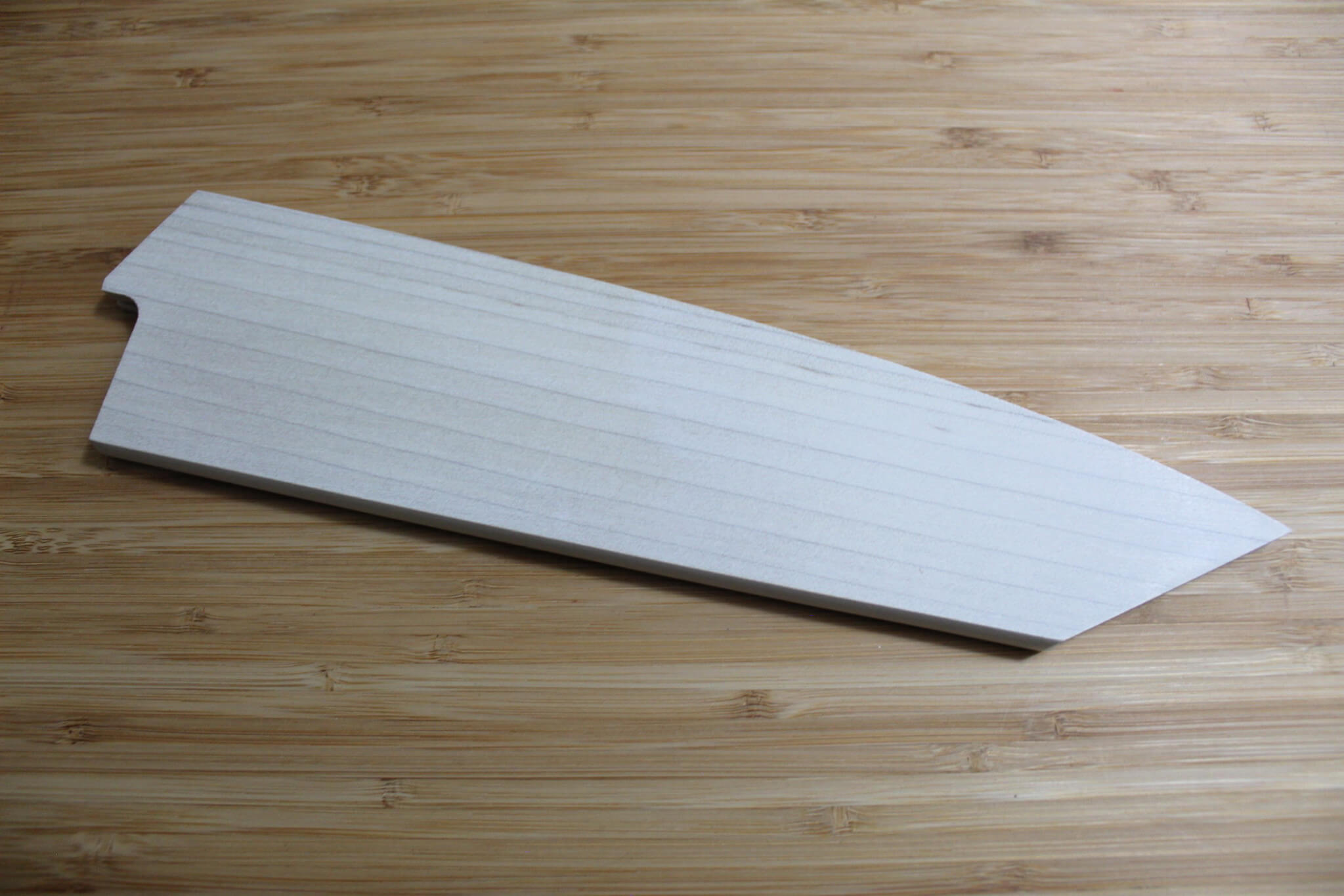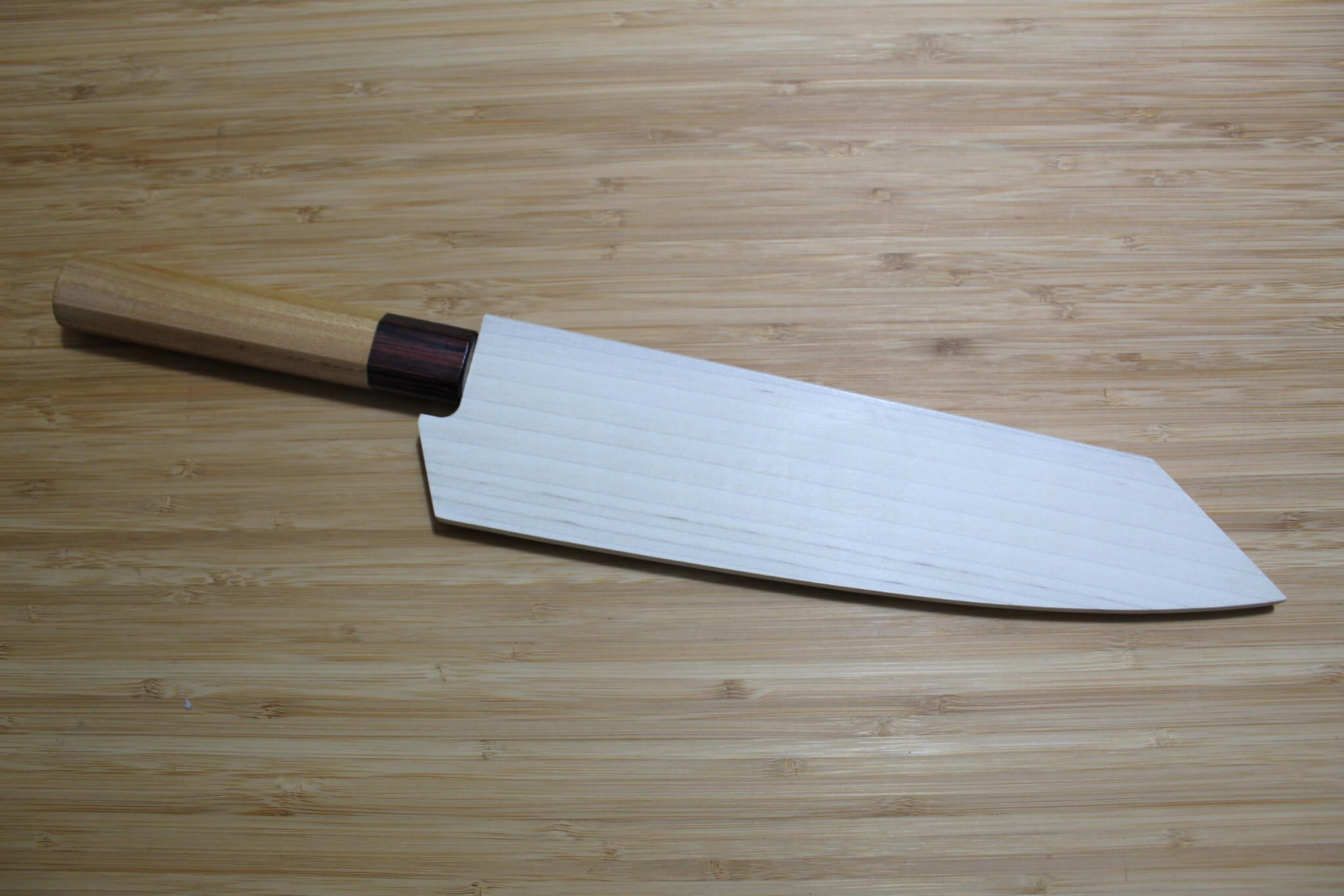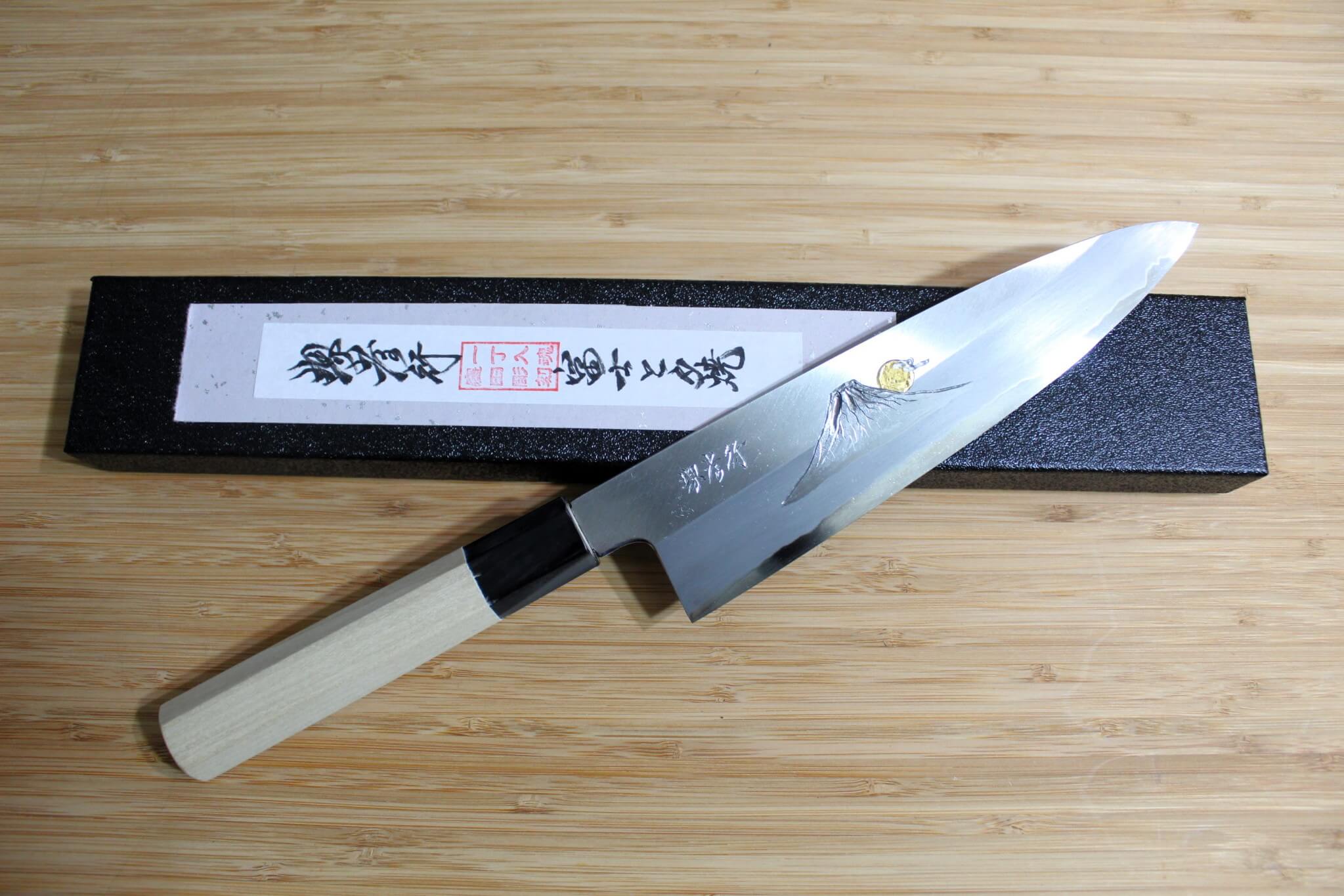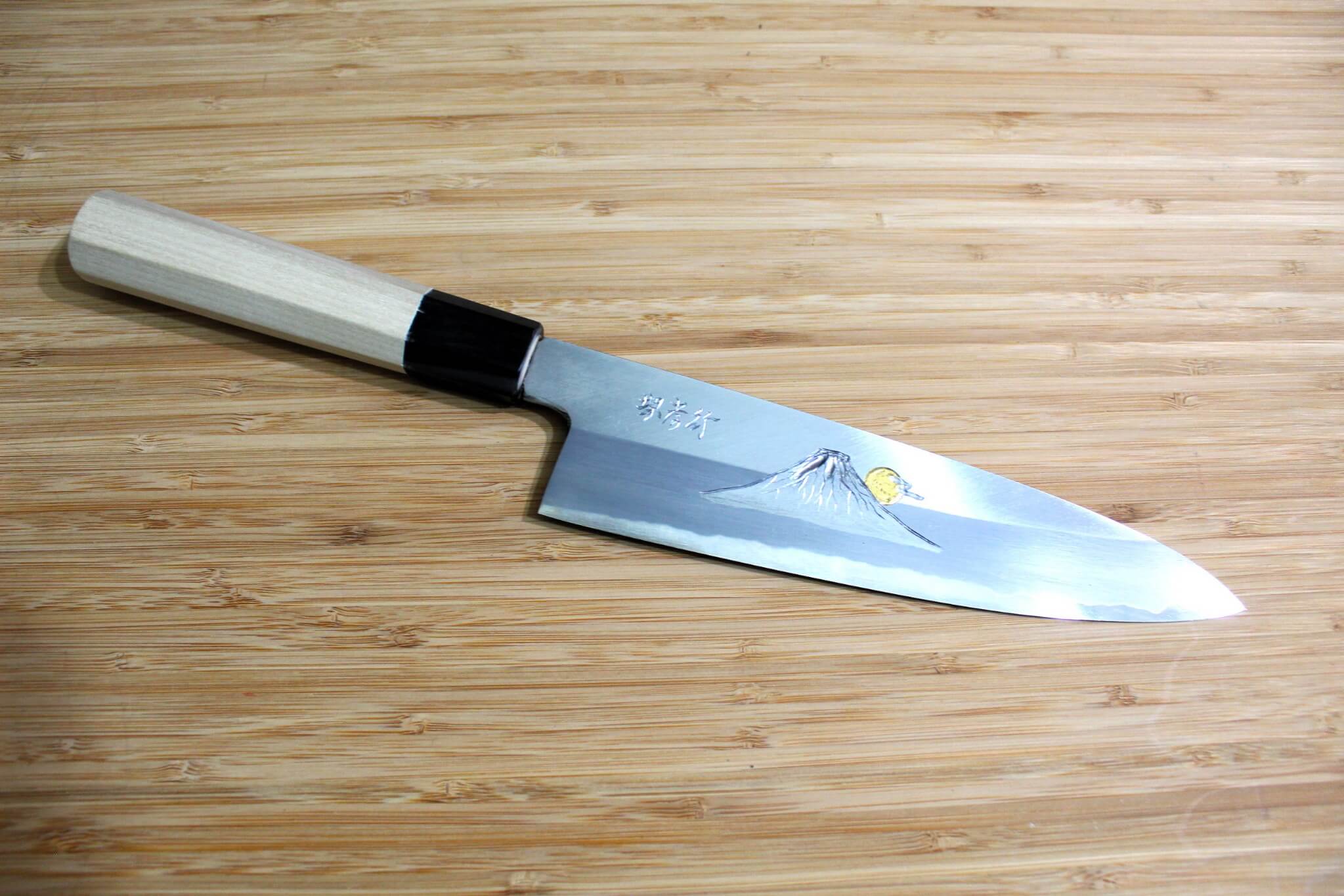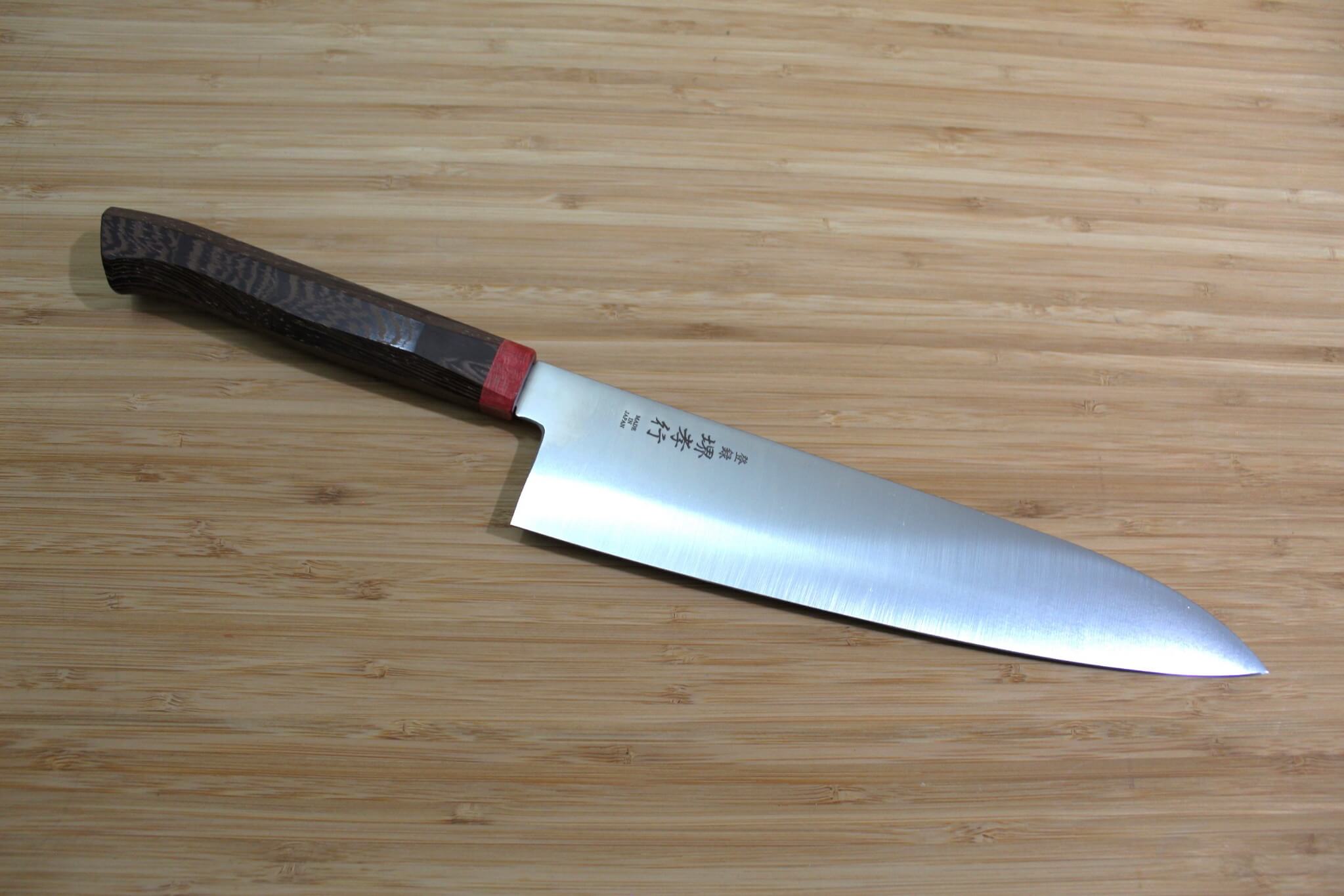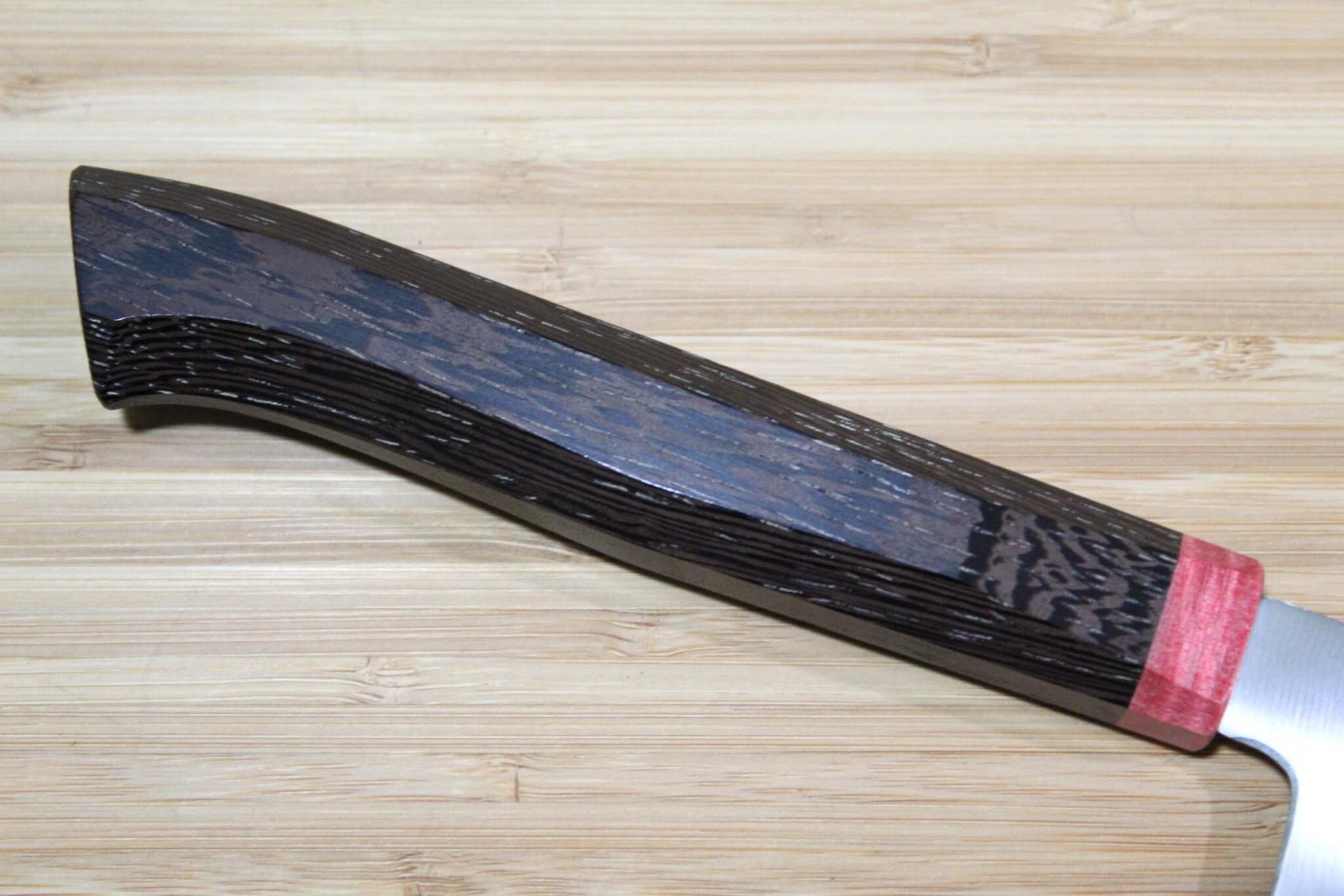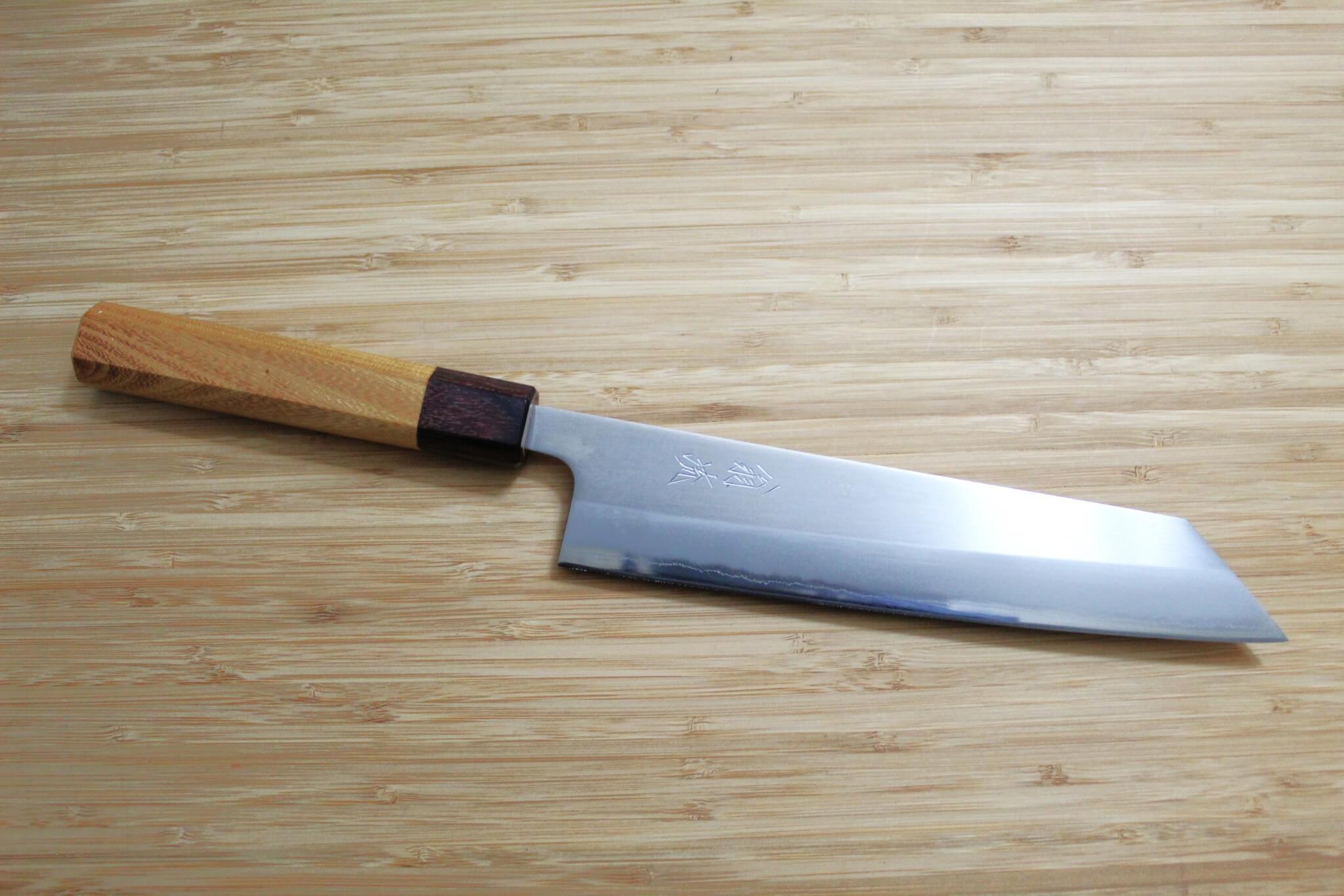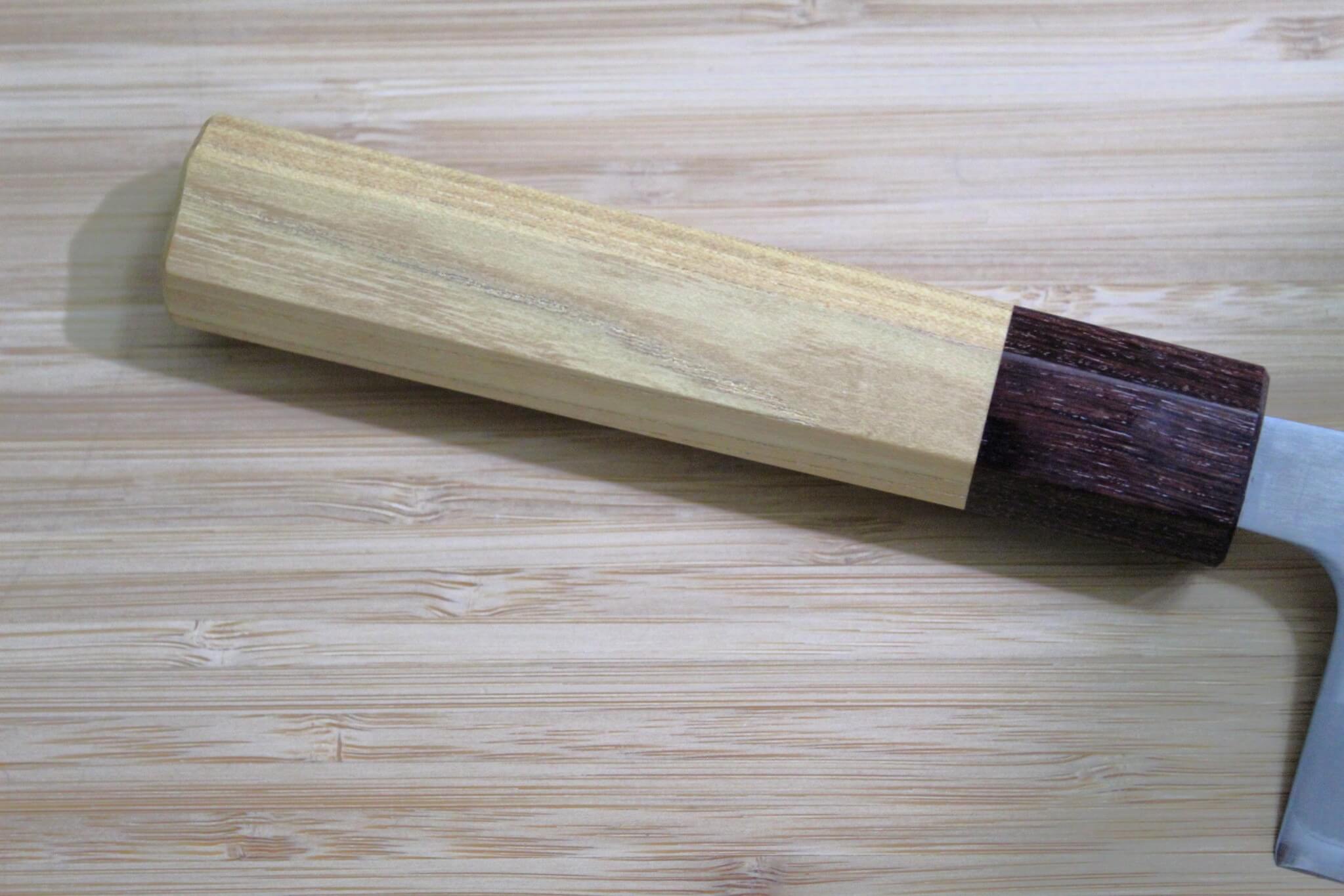Filters
EXPERIENCE OUTSTANDING JAPANESE CRAFTSMANSHIP
Gyuto knives can be made from stainless steel or Yasugi, which is the same kind of steel used to make Japanese swords. It’s especially tough, durable, and resilient to wear-and-tear. When taken care of, Gyuto Knives can last for generations.
Gyuto chef knives come in a variety of steels. Damascus steel with stainless steel cores and high carbon content, Aoniko (Japanese Steel Alloy) or Blue Steel #2, and Super Blue Steel are popular choices. Additionally, Gyuto handle styles vary widely. Some knives have more traditional Japanese style handle with an octagonal handle with a partial tang, while others have a Western-style handle with a full tang.
A Gyuto knife has all the beauty of a Western chef knife with the added elegance of incredible Japanese craftsmanship, superior metal, and different weight distribution. While a standard Western chef knife is weighted centrally, a Gyuto knife’s weight is slightly closer to the tip. This weighting is particularly apparent with the Japanese style handles with the partial tang.
Gyuto kitchen knives are regularly compared with French Sabatier knives, with the primary difference being the weight placement and slightly different curvature of the blade. The focus of this design is on sleek, nimble slicing.
SHOP EXCEPTIONAL JAPANESE COOKING KNIVES AT HASU-SEIZO
Looking for an opportunity to add a Gyuto chef knife to your collection? Hasu-Seizo offers an extensive range of blades handcrafted by Japanese artisans. We also stock a variety of other vegetable knives and multipurpose knives such as the Santoku, Nakiri, and the Petty (for those smaller tasks).
EXPERIENCE OUTSTANDING JAPANESE CRAFTSMANSHIP
Gyuto knives can be made from stainless steel or Yasugi, which is the same kind of steel used to make Japanese swords. It’s especially tough, durable, and resilient to wear-and-tear. When taken care of, Gyuto Knives can last for generations.
Gyuto chef knives come in a variety of steels. Damascus steel with stainless steel cores and high carbon content, Aoniko (Japanese Steel Alloy) or Blue Steel #2, and Super Blue Steel are popular choices. Additionally, Gyuto handle styles vary widely. Some knives have more traditional Japanese style handle with an octagonal handle with a partial tang, while others have a Western-style handle with a full tang.
A Gyuto knife has all the beauty of a Western chef knife with the. . . Show More >

